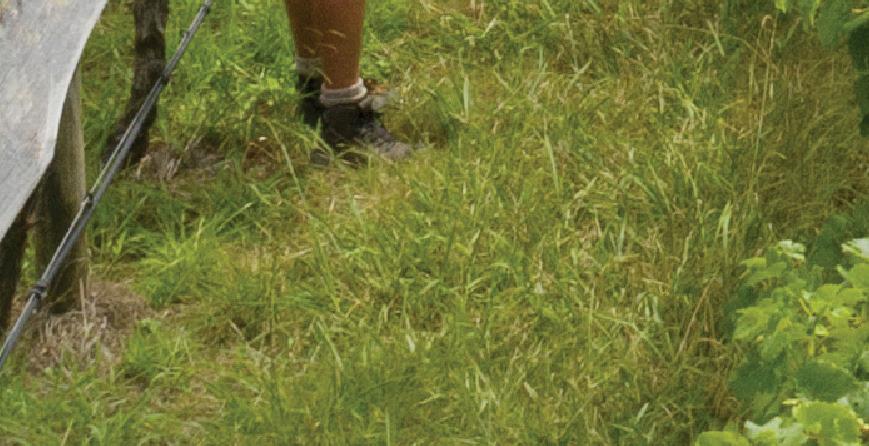HALF CENTURY
WELLNESS WORKS
DIVERSITY RULES
ORGANIC CONFERENCE



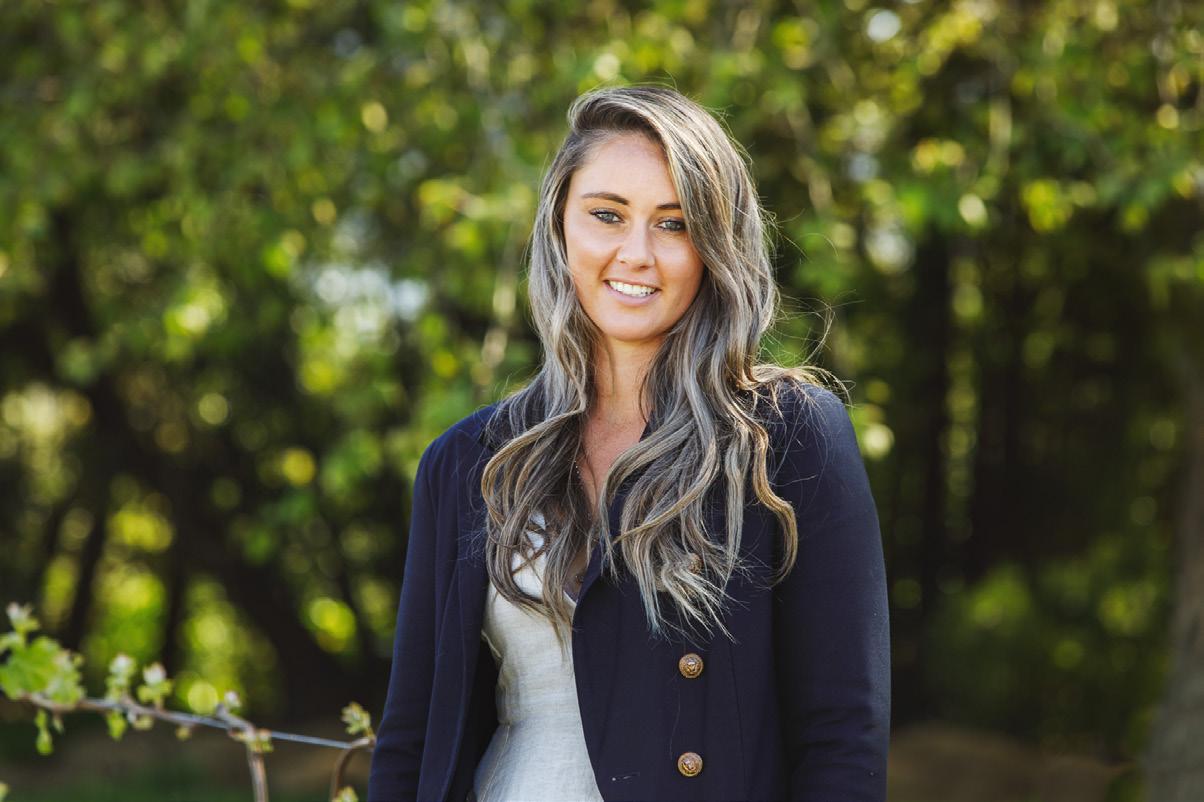
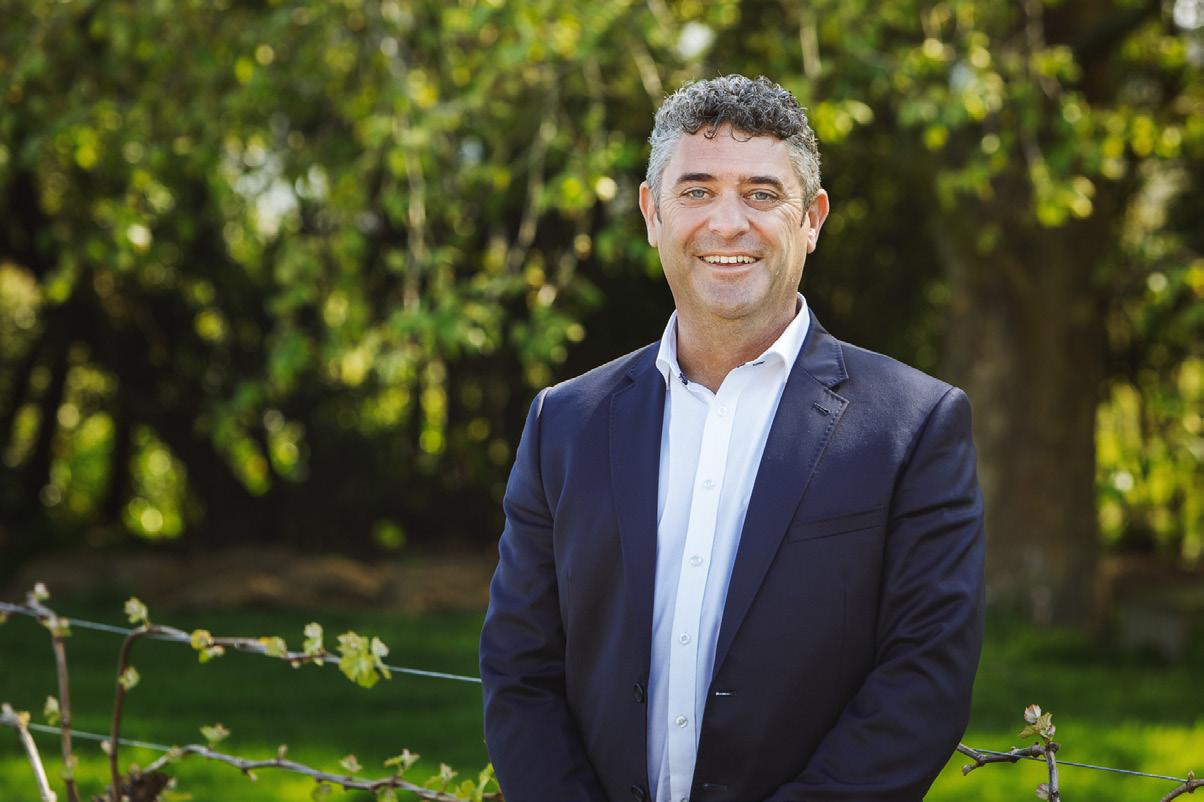

Mike is a seasoned professional with over 25 years of invaluable experience in the New Zealand’s wine industry With a background in viticulture, Mike seamlessly combines his expertise with sales, making him an expert in facilitating vineyard leases, business sales, and vineyard transactions Throughout his career, he has collaborated with renowned brands, leaving an indelible mark on the industry Mike prides himself on being approachable and personable, genuinely invested in helping individuals achieve their property goals Always ready and willing to share his wealth of knowledge and expertise, he ensures that everyone he works with, achieves outstanding results in every aspect of sales and leasing For unrivalled guidance on attaining exceptional outcomes, Mike is your go-to specialist in the New Zealand wine industry.

Charlie is a committed and dedicated sales professional who takes immense pride in delivering unparalleled customer experiences. Hailing from a respected Marlborough farming lineage spanning generations, she has extensive knowledge of the region Growing up in a rural setting and being part of a family involved in grape growing, she brings invaluable industry insights to the table, connecting you with experts who can guide you towards achieving your property goals. With her warm and approachable demeanour, Charlie is always just a phone call away, ready to offer her support and assistance for any inquiry you may have

The Team is here to help you reach your Property Goals, whether Buying or Selling
-Chat to the team today-
As Marlborough marks 50 years of wine, Brendon Burns looks at the 1980s, including the challenge of phylloxera, the opportunities of the vine pull, and the stellar success of Sauvignon Blanc.
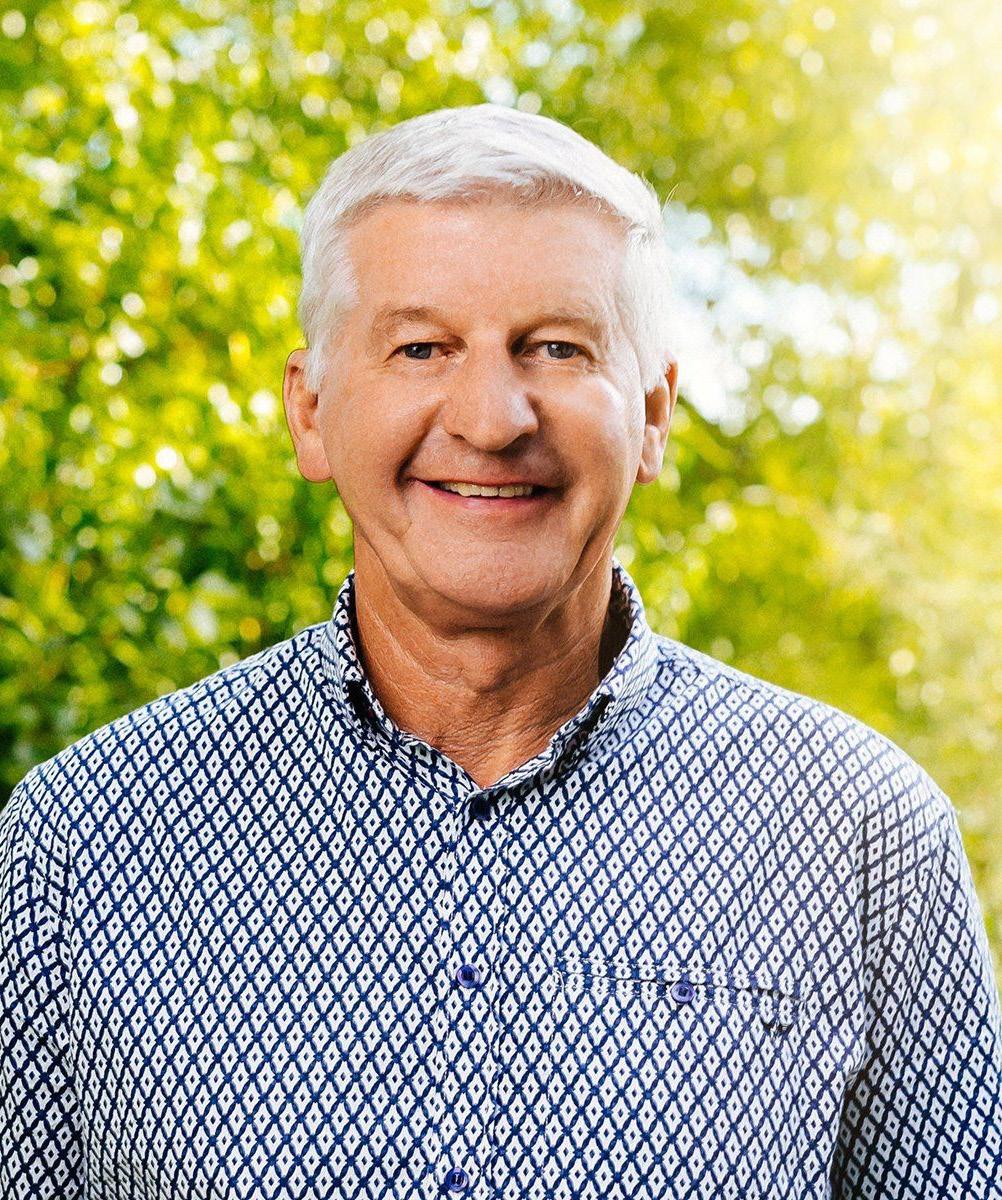
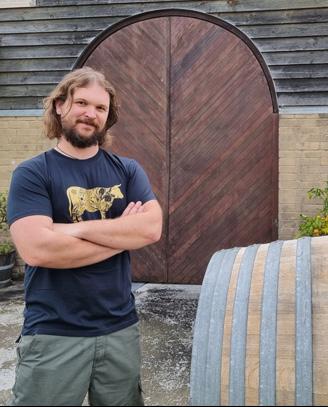
Kat Pickford talks to two wine companies about the natural advantage of an equitable workplace.
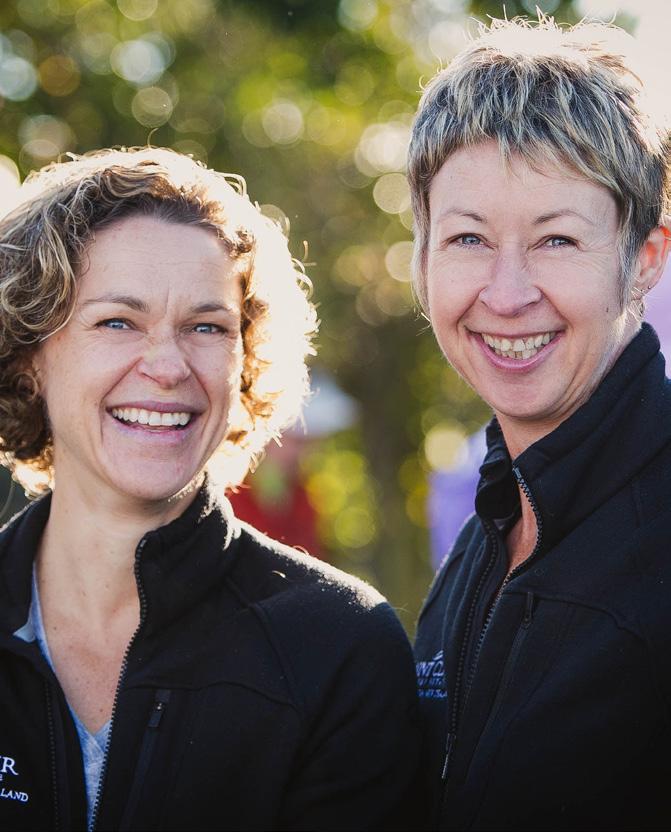
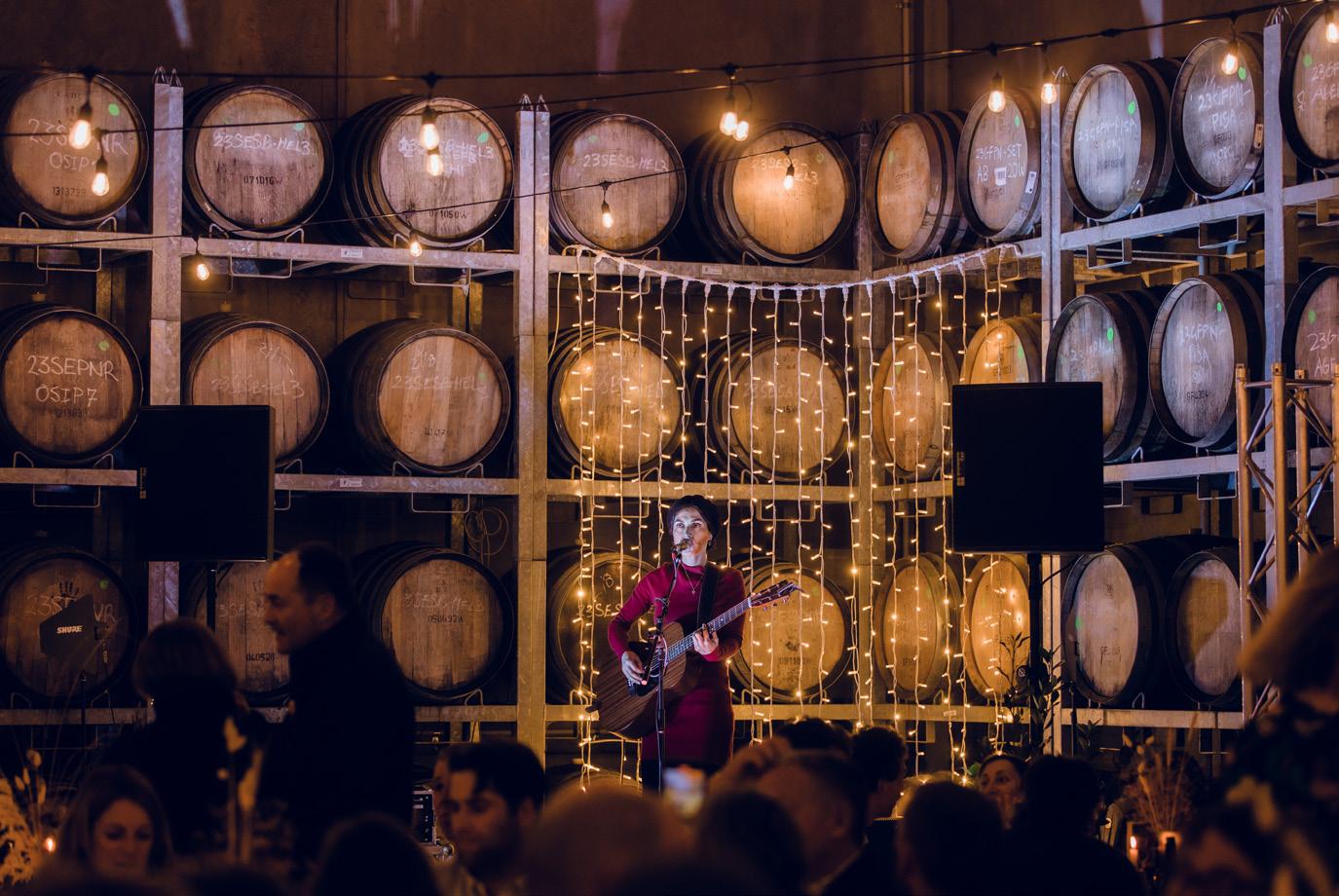
The Organic & Biodynamic Winegrowers Conference was as much about communities and culture as it was microbes and biochar.
Let
◆ Over 60,000 cubic metres of storage spread over two sites.
◆ Chilled storage available during vintage for handpicked grapes.
◆ Sophisticated monitoring equipment ensures your product is kept at the optimum temperature.
◆ We could lease you a small room for your exclusive use to suit your particular temperature requirements (

◆ We store bottled wine, barrels of wine and new plants awaiting the opportune time to plant.
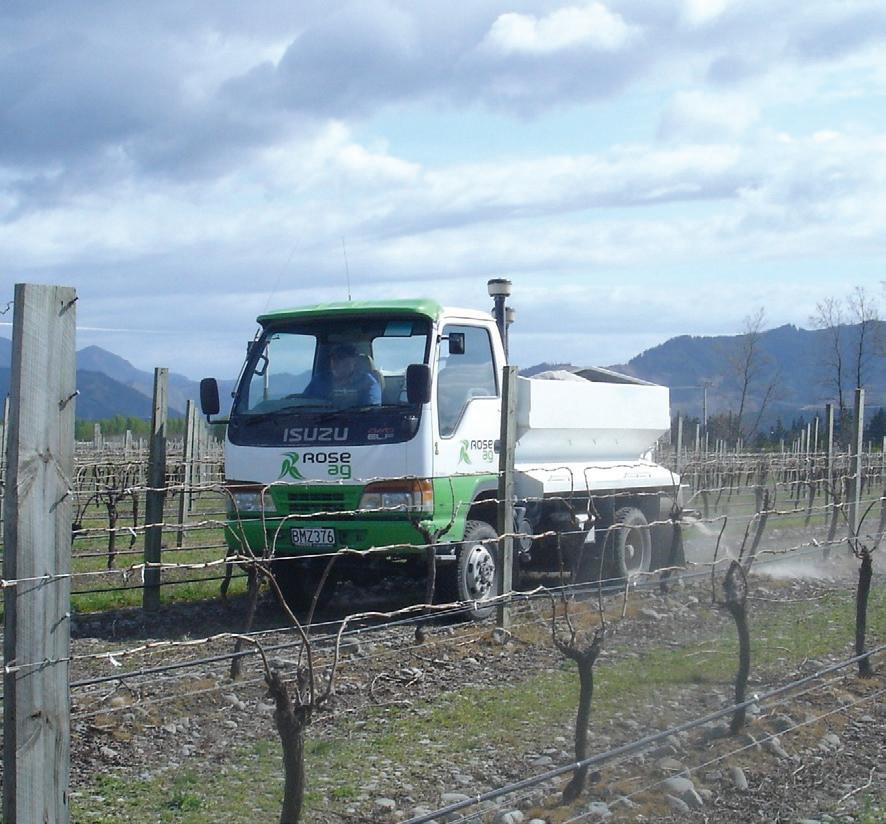
◆
grow
Warm and Chilled Glycol Systems
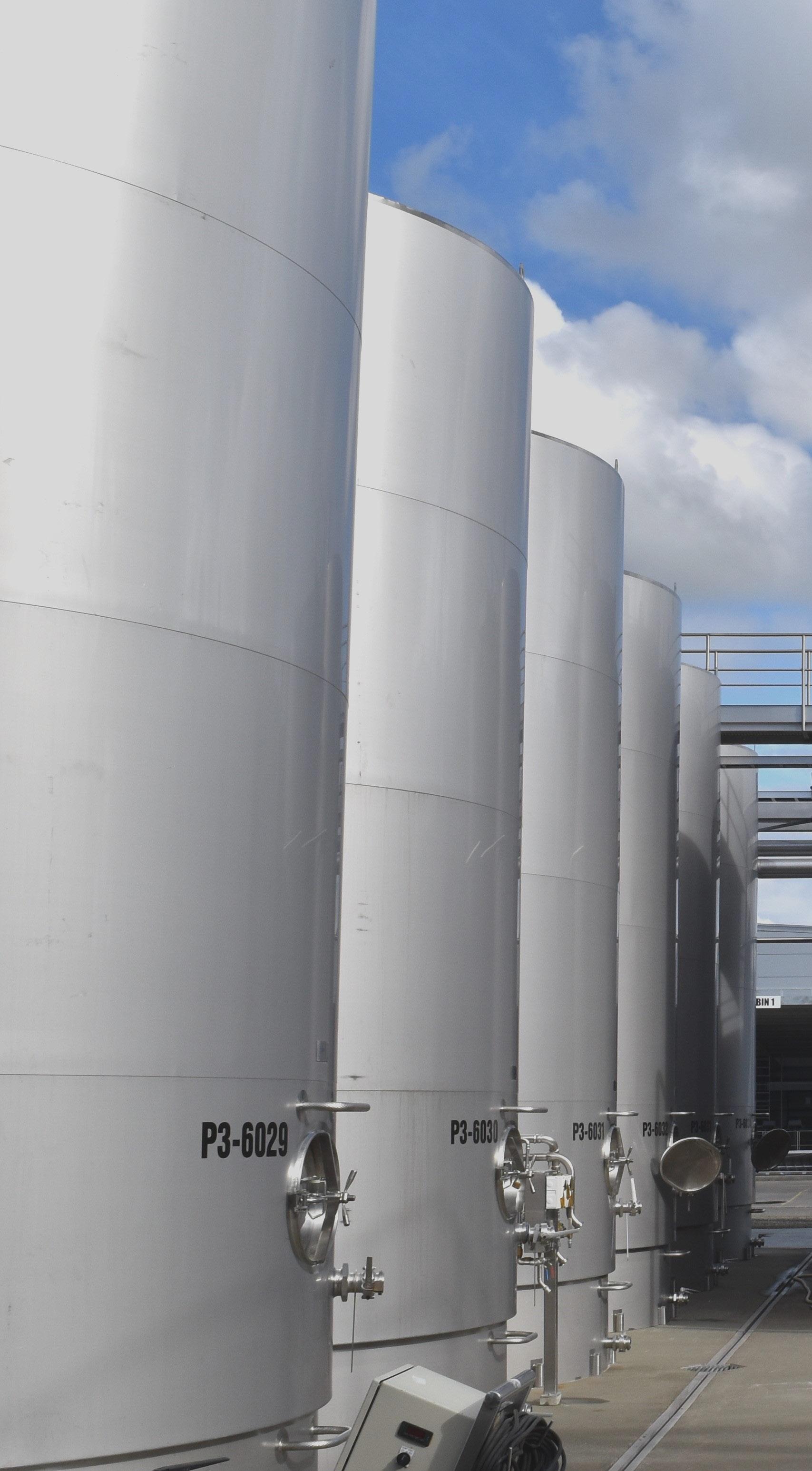
Design & Build Mechanical Services

Heat Recovery Systems
S/S Wine and Juice Lines
Water Treatment and Filtration
“Over
General Manager:
Marcus Pickens 03 577 9299 or 021 831 820 marcus@winemarlborough.nz
Editor:
Sophie Preece 027 308 4455 sophie@sophiepreece.co.nz
Marketing and Communications:
Sarah Linklater 021 704 733 sarah@winemarlborough.nz
Events Manager: Loren Coffey loren@winemarlborough.nz
Advocacy Manager: Nicci Armour advocacy@winemarlborough.nz
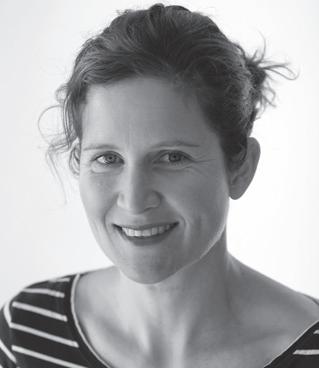
Advertising: Joanna May advertising@winemarlborough.nz
Grape Grower Directors: Andrew Nation nationa@gmail.com
Anna Laugesen anna@craiglochart.co.nz
Michiel Eradus michiel@eraduswines.co.nz
Nigel Sowman nigel@dogpoint.co.nz
Tracy Johnston tracy@dayvinleigh.co.nz
Wine Company Directors: Beth Forrest beth@forrest.co.nz
Damien Yvon damien@closhenri.com
Gus Altschwager gus@akwines.net
James Macdonald james@hunters.co.nz
Jamie Marfell Jamie.Marfell@pernod-ricard.com
Designed by: Blenheim Print Ltd 03 578 1322
Disclaimer: The views and articles that are expressed and appear in Winepress are entirely those of contributors and in no way reflect the policy of the Marlborough Winegrowers. Any advice given, implied or suggested should be considered on its merits, and no responsibility can be taken for problems arising from the use of such information.
This document is printed on an environmentally responsible paper, produced using elemental chlorine free (EFC), third party pulp from responsible sources, manufactured under the strict ISO 14001 Environmental Management System and is 100% Recyclable.
WHEN IT comes to the extraordinary success of Marlborough’s wine industry in the past 50 years, the just released Vineyard Report says a lot. In that short time, the region has developed 29,654 hectares of vineyard – 71% of the national total, with 1,113 vineyards.
More than 24,000ha of that area is Sauvignon Blanc, a variety that hit the headlines in 1986, when Hunter’s won gold in the UK Sunday Times awards for the variety, in an accolade Ernie Hunter would repeat for the next few years, putting Marlborough on the world wine map. That’s one of the yarns Brendon Burns touches on in this edition as he canvasses the industry’s travails and triumphs in the 1980s.
Amid its continued success and unabated growth, it’s vital that everyone involved in Marlborough’s wine industry strives to ensure their impact on the environment is as light as possible, including the soil, waterways and emissions they influence. In this edition we look at what Freshwater Farm Plans will mean for grapegrowers, when the government rolls out the new regulations in this region. This edition also looks at companies striving to mitigate their carbon footprint, which was a hot topic at last month’s Organic & Biodynamic Winegrowing Conference, including from International Wineries for Climate Action (IWCA) member Felton Road. It’s also the theme of the Wine Marlborough July Podcast, with Belinda Jackson of Lawson’s Dry Hills and Michael Wentworth of Yealands (also a member of IWCA) discussing the best routes to reduced emissions. Find it at marlboroughwinenz.com/podcast.
Care for the place, people and environment was at the heart of the hugely successful organic conference, which was as much about communities, culture and intergenerational values as it was soil microbes, biochar and cover crops. “It’s more than just growing grapes and making wine,” says conference co-chair Bart Arnst in the wake of the event. “We are supporting communities.”
The conference’s emotional stories of people and place were even more poignant for attendees who knew Bridget Glackin, one of our wine industry’s effervescent forces. Bridget, a beloved member of the Framingham team, died in an accident just days before the conference, leaving a void in the region and its wine industry. Bridget helped drive the recent Marlborough Wine Industry Wellness Week, was on the Marlborough Wine & Food Festival Committee, organised the annual Framingham Harvest Concert, and surely brightened the day of anyone who met her. She will be deeply missed by many.
FOCUSING ON small, practical things that are done regularly is the way to build resilience. Farmstrong is a nationwide, rural wellbeing programme that was set up in 2015 to help farmers and growers cope better with the ups and downs of the industry. I’ve been its ambassador since 2016 and what I like best about the programme is that it’s so practical.
I like to think of Farmstrong as a verb - it’s something people can actually do and I’ve seen first-hand how well its solutions work for rural people. More than 36,000 farmers and growers have participated in Farmstrong to date. Last year, over 17,000 attributed an increase in their wellbeing to Farmstrong.
Because they know to get the best out of your farm or orchard or vineyard, first you need to get the best out of yourself and your team. That’s true of any results-driven business, whether you’re a winegrower or a rugby player like myself.


Farmstrong is about wellness not illness. It takes a proactive, strengths-based approach to mental wellbeing and resilience by focusing on simple, daily habits and thinking strategies that are known to increase wellbeing and alleviate stress, especially during tough times.
So Farmstrong is the ‘ambulance at the top of the cliff’. Our main message is one of empowerment - that as individuals and workplaces there is always something within our control that we can do to make today and tomorrow better, no matter how difficult the circumstances might be.
Farmstrong creates tools and resources, based on the science of wellbeing, specifically designed to help farmers and growers manage workload, stress, pressure, change, uncertainty and challenge. These resources are available for free from the Farmstrong website or on request. There’s even a 150-page book, Live Well, Farm Well, that tells the stories of 29 farmers and growers who navigated challenging times and shares what they did to get through. It’s a great toolkit for anyone going through a challenging time.
Farmstrong encourages people to think about their wellbeing like a bank account and make regular ‘investments’ in things that boost wellbeing, so they have something to ‘draw on’ when times are tough. A little bit like a piggy bank, the idea is to make small deposits on a regular basis rather than waiting until our wellbeing is so low that
“The best approach is to build simple wellbeing habits into our working lives, on a daily basis.”
Sam Whitelock
The best approach is to build simple wellbeing habits into our working lives, on a daily basis. The science of wellbeing tells us that people with a strong sense of wellbeing share five simple habits – staying connected with others, keeping the body moving whether it’s yoga, gardening or playing sport, taking time each day to enjoy the simple pleasures rather than focusing on the big picture all the time, learning new things to stay fresh and giving back to their friends and community. I’ve made the ‘5 Ways’ part of my life and I encourage you to do the same. They definitely provide balance, support and a sense of perspective when the going gets tough.
We also encourage farmers and growers to look after the basics, like sleep, eating well and scheduling downtime. When people get busy these things tend to fall by the wayside, but as one farmer told us recently, no one can run a marathon on adrenalin alone. Whether you’re playing elite sport or making wine, it’s important to schedule time to mentally and physically ‘recharge the batteries’.
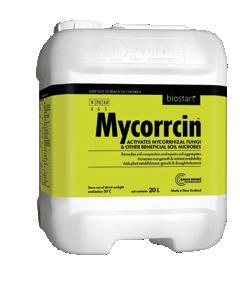
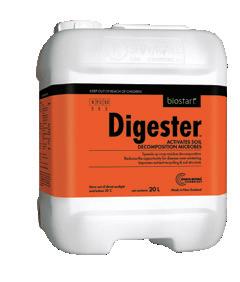
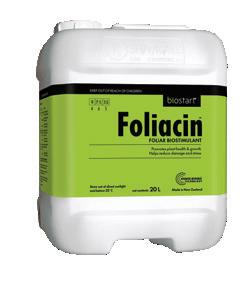

Science tells us that mental health is just like physical health - it can be good or bad. If we think about mental health as a continuum from minus five to plus five, minus
one to minus five means people are feeling stressed, anxious, depressed or not coping. That’s where most discussion usually ends and that’s what needs to change. We need to start focusing on the positive - the zero to plus five - so we start building people’s resilience. Zero to plus five might involve activities such as adopting the 5 Ways, looking after the basics even during busy periods, exploring our mindset and learning flexible thinking strategies so people have the mental fitness to cope with change and pressure. This approach is going to result in all sorts of benefits. The research shows people will be more productive, they’ll enjoy better business success and when they do strike challenges and setbacks, it will lessen their impact.
So, on behalf of Farmstrong, congratulations to the team at Wine Marlborough and the area’s winegrowers for ‘shifting the dial’ and focusing their recent wellness week on the different ways that people in their region have been implementing wellbeing practices in their workplaces. What a great idea. Practical, fun and effective.
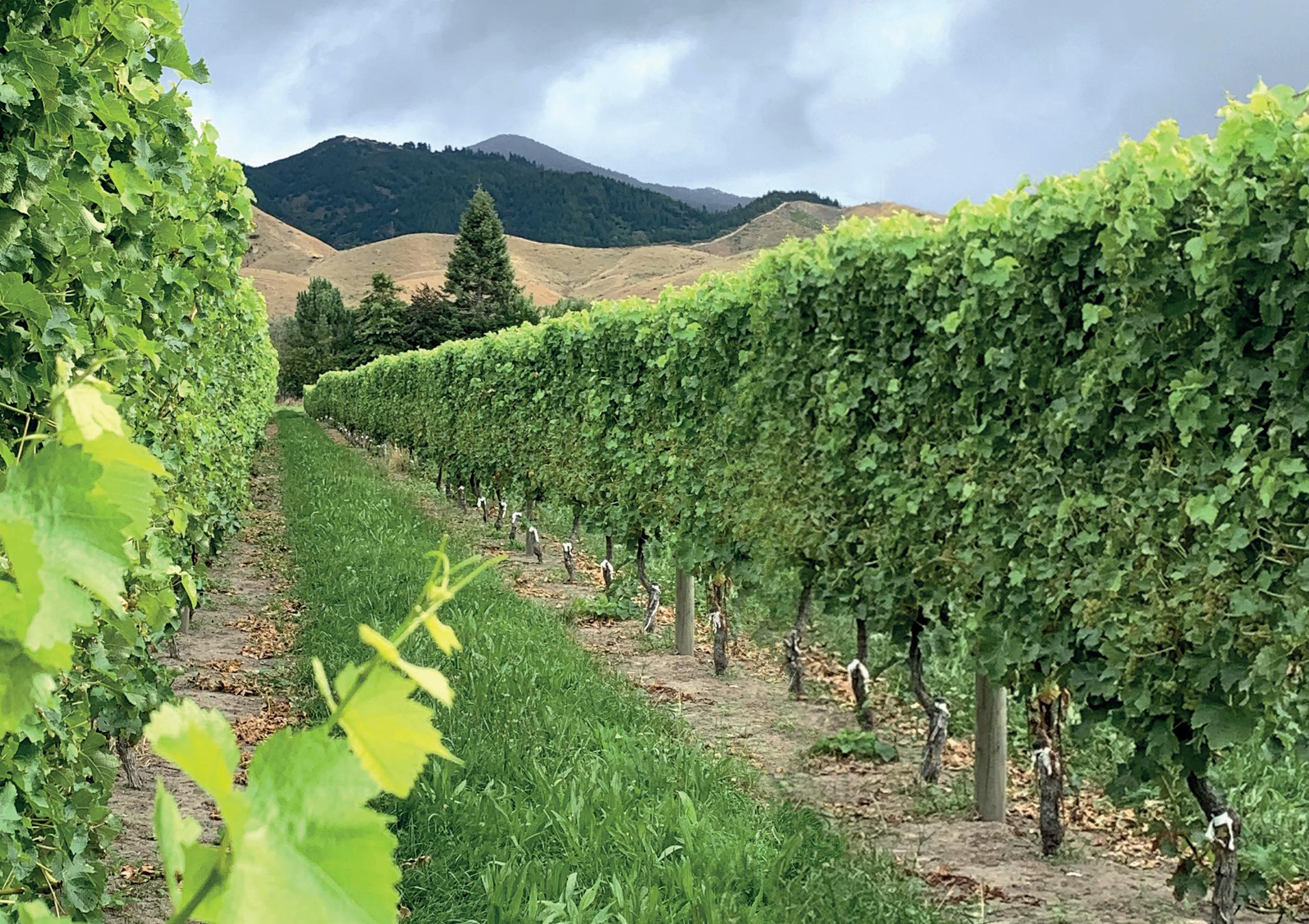
If more businesses and communities can start being proactive like this, we are going to have a much more sustainable and successful approach to improving mental health. Not just as businesses, but as a country.”
All Blacks and Crusaders rubgy legend Sam Whitelock is Farmstrong’s ambassador. Farmstrong is nationwide, rural wellbeing programme. farmstrong.co.nz


June’s mean temperature of 9.7°C was 0.9°C above the long-term average (LTA) temperature of 8.8°C. The June Met Report’s over the last few years have pointed out that June has undergone a significant warming trend over recent decades. June 2023 continued this trend and became the 9th warmest June on record for the 92 years 1932 to 2023. Eight of the 10 warmest June’s on record have occurred since 2002.
1GDD’s Max/Min are calculated from absolute daily maximum and minimum temperatures
2GDD’s Mean are calculated from average hourly temperatures
In the 12 months July 2022 to June 2023, 9-months recorded above average temperatures (July, August, September, November, February, March, April, May and June), and 3-months recorded below average temperature (October, December and January). The mean temperature for the 12-month period July 2022 to June 2023 was 13.92°C (Table 3). This is the third equal warmest July to June year on record, for the 92-year period 1932-33 to 2022-23. The data in Table 3 record the temperature to two decimal places merely to separate the numbers. However, when the temperatures are rounded to one decimal place, the third, fourth and fifth years in Table 3 (2013-14, 2022-23, 2021-22) all recorded a mean temperature of 13.9°C.
Year Mean temperature (°C)
2018-19 14.02 - 1st equal
2017-18 14.01 - 1st equal
2013-14 13.93 - 3rd equal
2022-23 13.92 - 3rd equal
2021-22 13.89 - 3rd equal
1989-90 13.82 - 6th equal
1998-99 13.76 - 6th equal
2020-21 13.75 - 6th equal
1997-98 13.70 - 9th equal
1974-75 13.69 - 9th equal
LTA 13.2 (1986-2022) 12.7 (1932-1985)
The 7th of June 2023 recorded the coldest ground and air temperatures, with a ground frost of -1.9°C and an air temperature of 0.3°C
Frosts
Blenheim recorded four ground frosts during June (LTA –11.6). All four frosts were recorded in the first two weeks of June. However, while there were only four official ground frosts (ground temperature <=-1.0) there were another
eight days during June when the ground temperature was between 0 and -1.0; not quite cold enough for a ground frost to be recorded. The 7th of June 2023 recorded the coldest ground and air temperatures, with a ground frost of -1.9°C and an air temperature of 0.3°C.
Total rainfall in June of 22.0 mm was 33% of the LTA (19862022) for June of 66.0 mm. The most recent years to have recorded a lower June total were 2017 with 18.4 mm and 2019 with 18.0 mm. The 6-months January to June 2023 recorded 296.4 mm, 97% of the LTA total of 305.1 mm.
Total rainfall for the 12 months July 2022 to June 2023 was 806.2 mm (Figure 1). This was 126% of the LTA (639.4 mm) and the 8th highest 12-month July to June total on record for the 93 years 1930-31 to 2022-23. Despite the 12-month rainfall total being the 8th highest on record, only 6 of the 12 months recorded above average rainfall. There was a massive difference in monthly rainfall totals over the 12-month period. July 2022 recorded 220.6 mm, the highest ever monthly total on record for Blenheim. October 2022 recorded only 16.8 mm.
Sunshine
Sunshine
Blenheim recorded 167.2 hours sunshine for June, 111% of the LTA of 150.1 hours. Total sunshine for the first six months of 2023 was 1118.2 hours; 90% of the LTA (1245.2). Total sunshine for the 12-months July 2022 to June 2023 was 2324.8 hours; 93% of the LTA (2499.3). Over the past year only 4-months recorded above average sunshine hours and 8-months below average sunshine hours.
Blenheim recorded 167.2 hours sunshine for June, 111% of the LTA of 150. 1 hours. first six months of 2023 was 1118.2 hours; 90% of the LTA (1245.2). Total sunshine 2022 to June 2023 was 2324.8 hours; 93% of the LTA (2499.3). Over the past year only above average sunshine hours and 8-months below average sunshine hours.
Average daily wind run for June 2023 was 170.4 km, 78% of the LTA wind-run. Average compared to the LTA wind speed of 9.1 km/hr.

All 12-months July 2022 to June 2023 recorded below average wind-run (Figure 2). The the 12-months was 199.5 km, the lowest on record, and the first time the a nnual average
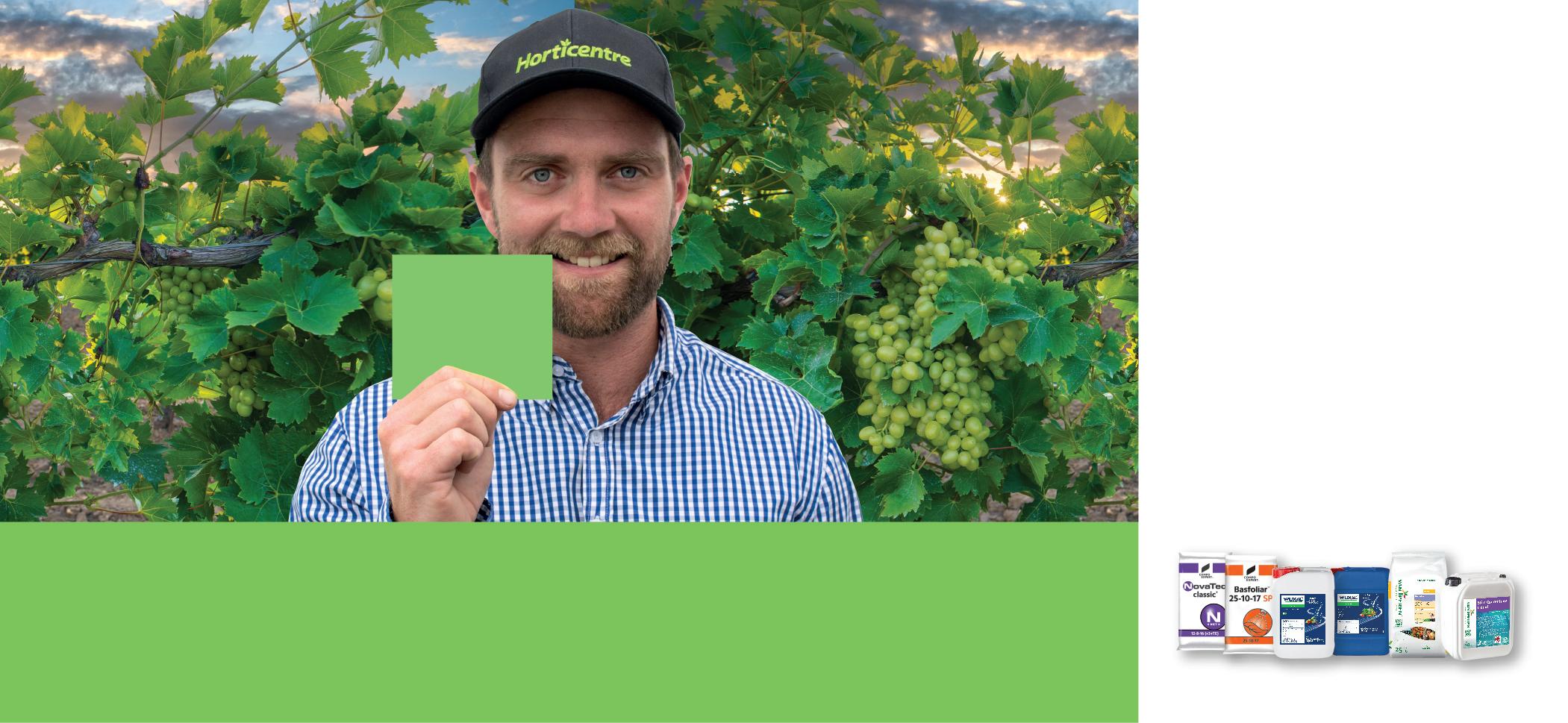
Average daily wind run for June 2023 was 170.4 km, 78% of the LTA wind-run. Average wind speed was 7.1 km/hr compared to the LTA wind speed of 9.1 km/hr.
All 12-months July 2022 to June 2023 recorded below average wind-run (Figure 2). The mean monthly wind-run for the 12-months was 199.5 km, the lowest on record, and the first time the annual average has dropped below 200 km.
NIGEL SOWMAN
With the Marlborough Winegrowers board elections looming, I’ve been reflecting on the three years since I joined the table, as one of five grape grower directors. I put my name in the hat in 2021 because I have a huge interest in our region and industry, and wanted to glean insights into what happens in the background - where the decisions come from and why they are made.

Some of our industry’s legacy members – the likes of Ivan Sutherland, Claire Allan, John Forrest and Dominic Pecchenino – took their place at this table, gleaning greater understanding of Marlborough wine while playing a part in driving it forward. I love to think I am following in their footsteps.
& AIR CONDITIONING
Your local specialists for over 40 years

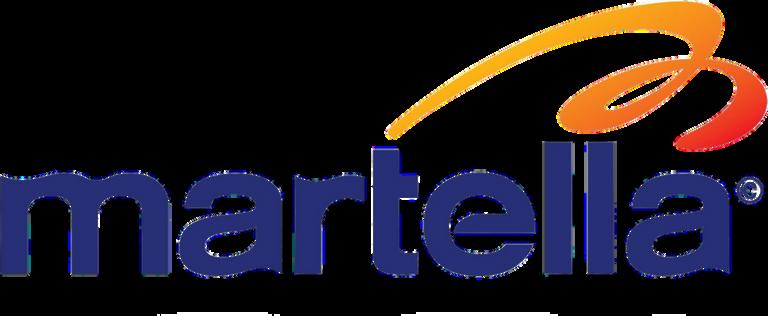
Repairs - call 24/7
Maintenance & Service
Hire Chiller Solutions
Design & Installation
We’re lucky there’s a really broad base to the Marlborough Winegrowers board, with representation from large multinational players alongside boutique winegrowers and winemakers, reflecting the beautiful scope and scale of our industry. Everyone brings their own values, including the vital voice of small players, and it’s a wonderful way to grow a broader perspective.
Governance takes you away from your little block of land, or your wine label, and into the broader landscape of the region, including understanding how national decisions affect us. That will develop your career going forward, in the vineyard and winery, and in leadership and governance roles.
The Marlborough Winegrowers board is certainly a fantastic steppingstone to other board roles, because it’s a supportive environment, where we learn about process, while being part of the day-to-day decisions that affect the industry.
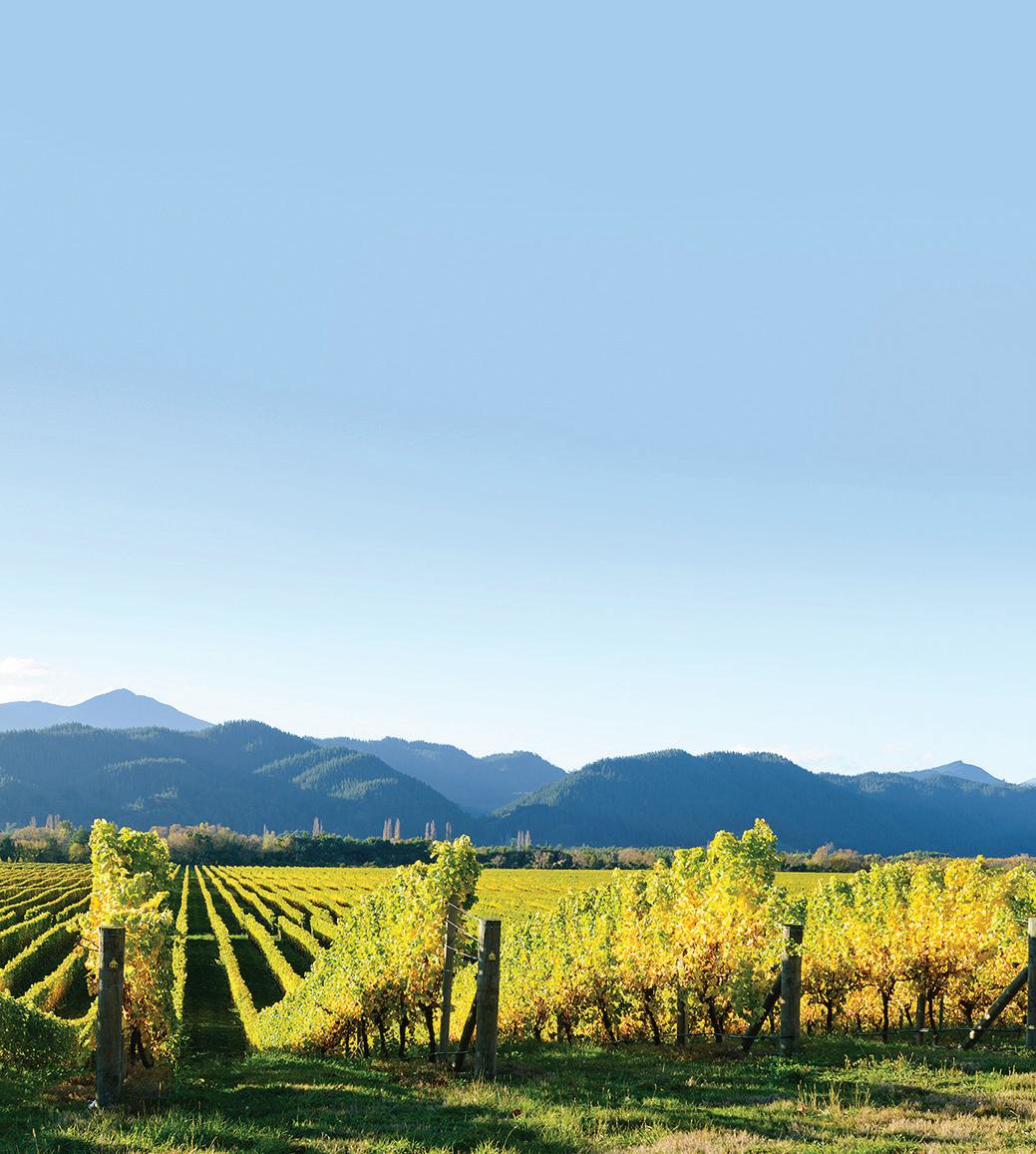
There are two grape grower seats and one wine company seat up for election this year. The Marlborough Winegrowers board is made up of five wine company and five grape grower representatives. It sets the strategic direction and priorities for Wine Marlborough Limited, sets board policies, identifies and manages risk, and monitors and evaluates organisational achievements to exercise its accountability to the organisation and its stakeholders. The term for a director is three years. For election information, please go to marlboroughwinenz.com/about.

“It’s a wonderful way to grow a broader perspective.”
Nigel Sowman
WHEN DANIEL Le Brun told locals that one day the whole Wairau Valley would be covered in grapes they muttered ‘crazy Frenchman’. The winemaker, with generations of Champagne production in his veins, brought 50,000 cuttings to Marlborough in 1980, having grown them at his nursery in Rotorua, where he’d met his wife, Adele. The couple purchased 12 hectares in Renwick (where Mahi is today) for the winery, and Daniel began developing and managing vineyards for absentee owners while waiting for his vines to grow and specialised equipment to arrive.
Corbans had bought land in Marlborough in 1980 and the following year Selaks and Nobilo partnered to buy land in Hammerichs Rd for the Drylands vineyard. In the early 80s Ross and Barbara Lawson planted their first grapes on Alabama Rd, seeding the Lawson’s Dry Hills label they would launch a decade later.
In 1984, the first record of phylloxera in Marlborough occurred on a vineyard where replacement untreated plants had been brought in from Nelson. Vineyard machinery then spread the louse from vineyard to vineyard.
The same year Brent Marris, whose father John had sourced the first land for vineyards 11 years earlier, became the first Marlborough person to become a qualified wine maker, after studying in Adelaide. With sheep and beef farming suddenly marginal after the loss of subsidies, Peter Vavasour started planting 12ha of grapes in the mid-1980s, opening the industry in the Awatere Valley.

The first Marlborough Wine & Food Festival kicked off in February 1985, with visitors bussed around different vineyards. Later in the year, Rex and Paula Brook-Taylor decide to set up their own winery after being told Corbans no longer needed their Riesling grapes. David Hohnen and winemaker Kevin Judd launched Cloudy Bay Sauvignon Blanc in 1985 to international acclaim. That significant year also saw growers paid to pull out vines, which was a game changer for Marlborough, says Ivan Sutherland (see page 11).
In 1986 – and the following two years – Hunter’s Sauvignon Blanc put Marlborough on the map with
successive gold medals in the UK Sunday Times awards. This year also helped Marlborough focus on producing quality wine, notably Sauvignon Blanc, after the Government paid growers to pull out less suitable varieties.
The next year, Hunter’s winemaker Almuth Lorenz established her Merlen Wines winery, Villa Maria bought land in Marlborough, and Mike and Diane Ponder secured 34ha of land on New Renwick Rd to plant Chardonnay, Sauvignon Blanc and olives. In 1998, the Stitchbury brothers began planting Jackson Estate and Grove Mill was started by Gerald Hope and others.
By the end of the decade, Marlborough was clearly established as a wine region. John and Brigid Forrest had planted their first vines, the three partners in Lake Challis bought land in Renwick. To cap it all, as 1990 dawned, Queen Elizabeth visited Montana’s Brancott vineyard.
Wine writer Tessa Nicholson has interviewed significant industry players for her soon-to-be-released book: Fifty Years, Fifty Stories; Marlborough the region that turned the wine world upside down She will speak to award winning journalist Mike White at the Marlborough Book Festival on July 23, discussing the industry’s challenges overcome and enterprises rewarded.
Marlboroughbookfest.co.nz
By the end of the decade, Marlborough was clearly established as a wineDaniel Le Brun kickstarted Marlborough’s sparkling production in the 1980s
Ivan Sutherland was born connected to land and water. He grew up in a farming family near the Wairau rowing sheds, just a few strokes from Cloudy Bay, a name he would later help make world-famous.
Ivan studied agriculture, valuation, and farm management at Lincoln University, before joining the New Zealand rowing eight, which won bronze in the 1976 Montreal Olympics. In 1979 he and wife Margaret bought 20 hectares of land (at $3,200 per hectare) off Bill Walsh on Dog Point Road, in partnership with Ivan’s cousin Robin Sutherland and Robin’s wife Bernice, who they later bought out. Müller Thurgau was planted the first year, followed by Riesling and Mendoza Chardonnay. “We have still got some Mendoza on its own roots for nostalgic reasons,” Ivan says. He retired from rowing when the Moscow Olympics was boycotted in 1980, and then set about valuing much of Marlborough for the Valuation Department, before starting a private valuation and farm management consultancy. When Lex Hayward joined him in partnership, taking on most of the valuation work, Ivan could concentrate on clients associated with the emerging wine industry.
In 1985, David Hohnen from Margaret River’s Cape Mentelle, asked Ivan to do some consultancy work on land values and vineyard development costs, having just purchased a large block of land off Corbans on Jacksons Road. He’d come after tasting Marlborough Sauvignon Blanc with some New Zealand producers at his West Australian winery. Under the prevailing overseas investment rules, David needed New Zealand investors in the deal, so Ivan and Margaret, with banker Chris Simmonds, purchased around 8ha, as did Maree and David Leonard, Kevin and Kimberley Judd, and Allan and Cathy Scott, while Cloudy Bay Vineyards retained 30ha.
Grapes were sourced from Corbans for the first few vintages, but Ivan oversaw viticultural expansion after becoming the company viticulturist in 1986. “David made it attractive for me,” he says. Lex took over the valuation practice. Along with developing Cloudy Bay’s land holding, another early task was finding contract growers. Ivan and Margaret jumped in, along with the Judds, Leonards, Scotts, John and Pip Hoare, David and Val Rose, Phillip and Ngaire Neal, and Mike and Robyn Tiller. Sauvignon Blanc was obviously the focus, but also included existing plantings of Chardonnay and Cabernet Sauvignon, the latter proving hard to ripen.
The early to mid-80’s brought challenging times. A glut of lower-quality wine led to the Labour Government paying growers to pull out vines in 1985. While Gisborne and Hawke’s Bay benefitted most, through their greater vineyard area at the time, it was a game changer for Marlborough. People began to plant Sauvignon Blanc, in particular.

Adding momentum was a change in how grape prices were set. Ivan had been among those representing large grower groups across Marlborough, Hawke’s Bay, and Gisborne in negotiations with the large wine companies, principally Montana chief executive Peter Hubscher and his top Auckland lawyer. “Their reading of an economic return to the grower was fundamentally different to ours,” Ivan says. The Commerce Commission, after a lengthy hearing, ruled this was collective bargaining and disallowed the practice. “And it was probably the best thing that happened to the industry,” Ivan says. “Even though I fought against it at the time.”
Marlborough’s emerging name for Sauvignon Blanc saw growers better rewarded. Ivan had first planted Sauvignon Blanc on his own blocks in 1984 and for over a decade supplied much of the Cloudy Bay Sauvignon Blanc blend. “There wasn’t a whole lot of Sauvignon Blanc around for quite a while.”
Adding to the challenges of the 80’s was the discovery of phylloxera in Marlborough, Ivan says. “People were absolutely horrified. One could liken it to Covid. Everyone was banning vehicle access, meticulously cleaning, washing equipment, but the horse had bolted.”
Competition for rootstock saw Cloudy Bay establish a nursery, allowing for the gradual replanting of company and growers’ vineyards with phylloxera-resistant rootstock. Also, in the late 80’s, French Champagne house Veuve Clicquot became perhaps the first European investor of scale in Marlborough, buying 100ha off Pat Hammond near Renwick. Within a year, Veuve Clicquot purchased 80% of Cloudy Bay and Cape Mentelle, with the block then transferred to Cloudy Bay for management and planting. Cloudy Bay and Marlborough were now world-famous.
IT’S COLD, dark and early in the Awatere Valley as Yealands Estate’s ‘tong masters’ don their aprons hours before dawn. By the time the sun peeks over the neighbouring Pacific Ocean, they’re fuelling roaring fires in the winery’s receival area, and preparing a winter solstice feast for winery staff, permanent vineyard teams and seasonal pruning teams.

It’s all part of connecting, says health and safety manager Brodie Cornelius, who is working to embed wellbeing into the wine company’s culture, anchored by pillars of chill, connect, move, and enjoy. “We do a lot and often,” he says. “Our focus is ingraining wellbeing into everything we do.”
That philosophy, and the myriad of actions that support it – from an onsite counsellor and physio over vintage, to childcare subsidies and free period products — caught the attention of judges in the inaugural Marlborough Wine Industry Wellness Week, held in May. “Yealands showcased significant initiatives that underpin wellbeing, alongside small things that are easily overlooked,” says Wine Marlborough advocacy manager Nicci Armour.
Companies throughout the region’s wine sector were asked to share their inhouse wellbeing initiatives in the wake of harvest, celebrating those doing well, and sharing ideas for those wanting to do even better. Spy Valley Wines won the first ever Marlborough Wine Industry Workplace Wellbeing Impact Award for Taco Tuesday (see June Winepress), but the judges created a separate accolade for Yealands – the Marlborough Wine Industry Workplace Wellbeing Leadership Award – with judges noting that big gains can come from lots of small things sustained over time.
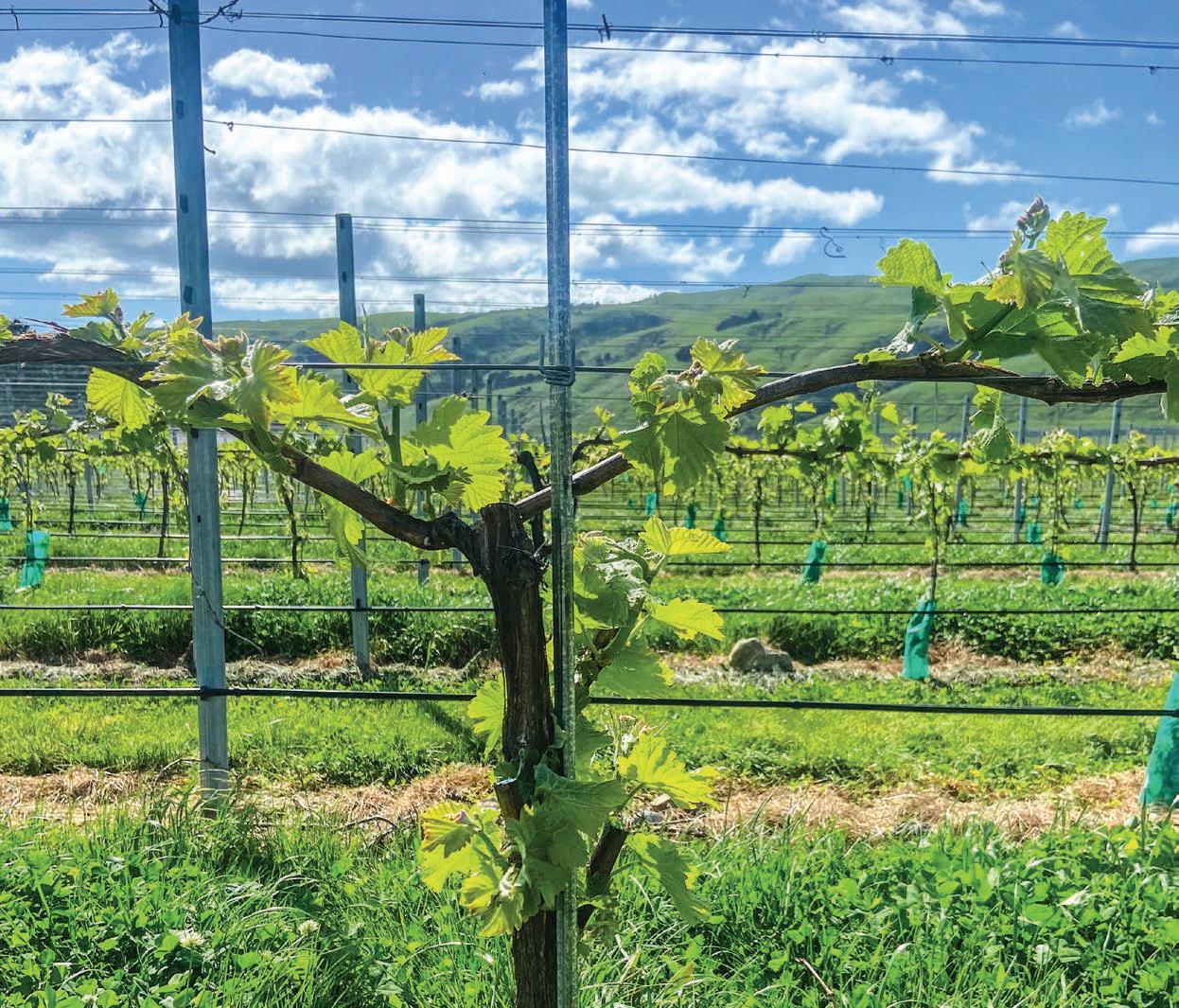
The list of day-to-day initiatives, like flu jabs and skin checks, fruit bowls and sports sponsorship, and a day off and bottle of wine for birthdays, provide the foundations for more focussed initiatives, including the physio available onsite for winery and vineyard staff over vintage 2023, as well as a counsellor for personal and work-related concerns. Vintage brings in international cellar hands, all navigating the complexities of working in a new country, and the counsellor was another way to protecting their wellbeing while far from home, Brodie says. The harvest also sees
a pastoral care team kick into action, feeding the team and checking in on morale, while the childcare subsidies available through vintage have benefits for staff and company alike.
Yealands has had a “huge focus” on mental health in recent years, and a pre-vintage visit by mental health advocate Mike King, founder of I Am Hope, was followed by staff interviewing each other for an engagement video, getting individual takes on wellbeing and health. Meetings naturally begin with a round-up of how everyone is feeling, with a push to remove any stigma around mental health issues, Brodie says, noting a desire to have wellbeing integrated into business as usual, as is increasingly seen with health and safety.
The wellbeing culture is also about physical wellbeing and connection, and some of the company’s initiatives –such as paying entry fees for staff and their family for the likes of Round the Bays and Tussock Run – help achieve both. In June the company instigated a new initiative, with a healing therapist to be brought in to work with staff, improving their breathing, meditation techniques and then overall wellbeing. “The things we do are kind of endless,” Brodie says, talking of recent engagement in Pink Shirt Day and Gumboot Friday, chosen by staff as important days to support. “That was really, really cool.”
He hopes the care and attention is attracting more skilled people to the company, including the team of five women, all aged under 23, who managed and operated harvesting equipment this vintage. “It would have been unheard of 10 years ago and now it’s really celebrated within the business.”
ECO TRAINING STAKE is a new innovation designed to replace single use bamboo with a multi-use, sustainable and fully recyclable product that can also be used in conjunction with Klima and other vineyard machinery.
Why ECO TRAINING STAKE?
• Marlborough is beginning their redevelopment cycle and utilising reusable stakes is cost-effective as vineyards only need to buy their stakes once, then they can reuse them multiple times.
• Vineyards around the world are becoming more automated and mechanised and uniformity to the vineyard plant trunk is key. By keeping vineyard stakes in the ground for three to four years the vine trunk will grow straight and aligned with your trellis.
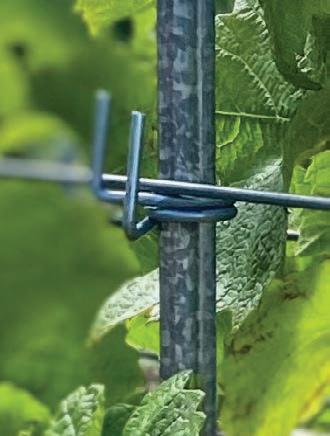

• The ECO TRAINING STAKE is fully recyclable.
• ECO TRAINING STAKE aligns with the wine and viticulture industry sustainable grape growing practices.
• A solid stake protects young plants from cultivators.
• There is a clip option available for using Klima Pruning Machines.
BUILDING COMPANIES based on a culture of inclusivity, equality and respect results in a higher level of collaboration and productivity, and a more dynamic and interesting workplace, says Spy Valley Wines managing director Amanda Johnson.
And while New Zealand businesses grapple with an acute labour shortage, providing equitable conditions and equal pay provides a boost to employee retention and engagement, she adds. “People, especially Gen-Ys are looking at work differently — particularly post-Covid. People are more discerning about where they work and who they work for, so it’s important for employers when recruiting to understand that it’s not just about the money, but an overall employment value proposition — the total benefits we can provide in return for their amazing performance.”
Last year Women in Wine New Zealand released a Gender Pay Gap report that showed that in 2021 the median gap for base salary across all roles included in the survey was 7.8%, which is below the national average of 9.1%.
Nicky Grandorge, Women in Wine New Zealand’s National Coordinator says the group was pleased to be below the national average “but it’s still not good enough, and we have to close the gap”.

Spy Valley Wine has an even gender ratio - not by design, but by hiring the best individuals for the job,
Amanda says. Women occupy roles throughout the vertically integrated business, from senior management to the vineyard, administration, sales and marketing, winemaking, laboratory and bottling line. “We have a very robust recruitment process — talent and capability is important, but also that compatibility with our culture and our core values — it’s important when we bring people into the team that they understand and buy into it.”
Saint Clair Family Estate Marketing Manager
Sarina Ibbotson says their strong family-centric values, which include flexible working hours, ensure no one is disproportionately affected by parental responsibilities. “Diversity plays a pivotal role in making sure our teams are happy and functioning to the best of their ability,” she says.
“Women and men are well represented throughout Saint Clair and everyone’s views are always welcomed. Having such a diverse team ensures ideas from all corners of our business are shared and acted upon.”
The numbers speak for themselves — Saint Clair Family Estate’s wine making team comprises equal numbers of men and women and their entire team has a gender split of 65:35, favouring women.
This is far cry from the industry figures in the report, which showed senior winemaking positions remain very much dominated by men. Because figures were so small, the roles of chief winemakers and winemakers were combined, showing only a quarter of winemaking roles were held by women. And while the pay gap has diminished from 37% to 18%, it is still double the national average across all
Tory Channel Kelp Products' certified organic Natural Kelp Tea is a complete food for plants and soils.

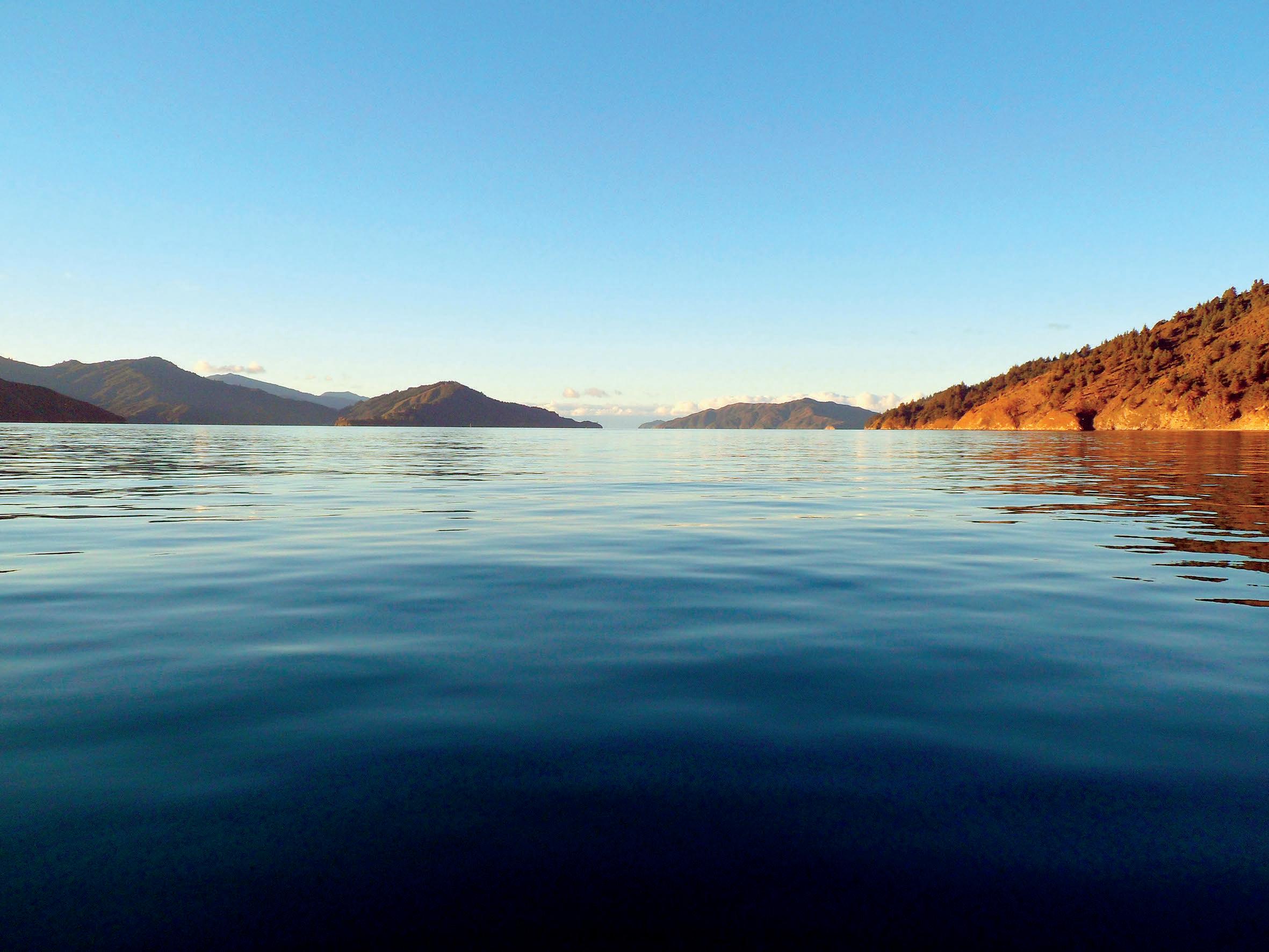
Ideal for use in the vineyard via drip lines or as a foliar spray, and available in any quantity from 20 to 2000 litres in a single delivery to your preferred site.
www.torychannelkelp.co.nz | 027 445 3708 | sales@torychannelkelp.co.nz
The wealth of the sea to soil & plant
The gender pay gap in New Zealand’s wine industry is lower than the national average, but reducing it further requires a commitment to change. KAT PICKFORD talks to two wine companies about why an equitable workplace is so important for business.Julie and Sarina Ibbotson
industries.
Amanda was perplexed by the figures, because gender doesn’t come into their recruitment process or pay and rewards scheme. “I am surprised – we have a strategic approach, based on the industry average from national data and use of the LCI (Labour Cost Index), which sets role remuneration and then performance-based scale,” she says. “Gender does not enter the equation, which I think is due to our equal gender split in management and our belief in a transparent process. We do not have bias, I believe.”
Spy Valley Wine Assistant Winemaker Ashley Stace says the company's reputation for being a female-friendly place to work was one of the factors that attracted her.
It was “refreshing” to work in an environment where women’s voices were valued, rather than being the exception, she says. “I’ve often been the only or the youngest woman, and while it’s empowering to be making strides for women in the industry, one of my favourite roles was working on an all-female team — which was one of the things that really attracted me to Spy Valley.”
Amanda and Sarina both hope the Gender Pay Gap report will serve as a catalyst for change in the industry. “I believe people should be rewarded on their capability, not their gender,” Amanda says. “Hopefully the report will enlighten some who have gender bias, whether that be conscious or unconscious.”
New Zealand’s wine industry is “fair, supportive and inclusive” on the whole, Women in Wine New Zealand coordinator Nicky Grandorge says, welcoming findings that the industry performs better than the national average when it comes to pay gaps. “But we wanted to find out if and where there is room for improvement. Following the research we discovered, in fact, there is work to be done.”
Late last year the group released a Gender Pay Gap report commissioned from Strategic Pay, which analysed statistics from 2017-2021, covering 39 companies and 12 permanent roles associated with growing and producing wine, as well as cellar doors. In 2021 the overall median average gap for base salary for all roles in the wine industry was 7.8%, compared to a national average of 9.1%. In some roles the gap was small and moving in the right direction, including for assistant vineyard managers, assistant winemakers and cellar door roles, says Nicky. “In others, however, the payroll pencil needs to be sharpened.” That includes laboratory roles, vineyard management and senior winemaker roles, where pay inequity is more significant, “despite more women now moving into these positions which should naturally help close the gap”. Women in Wine Kate Radburnd says in the report that the gender pay gap differential requires commitment to change. “We need to take action now, set goals and commit to achieving equal pay for everyone in our industry.”
Internationally Renowned Wine Region Calling
This Weka Plains property, located in the Waipara wine region, presents an exciting opportunity for individuals passionate about viticulture. Spanning 43.0820 hectares situated to the west of the North Canterbury Township of Waipara, along the north bank of the Weka Creek.
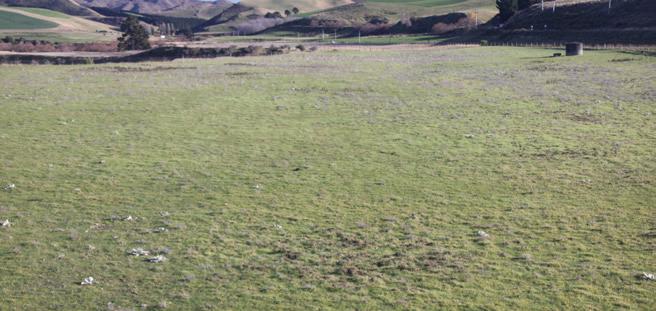
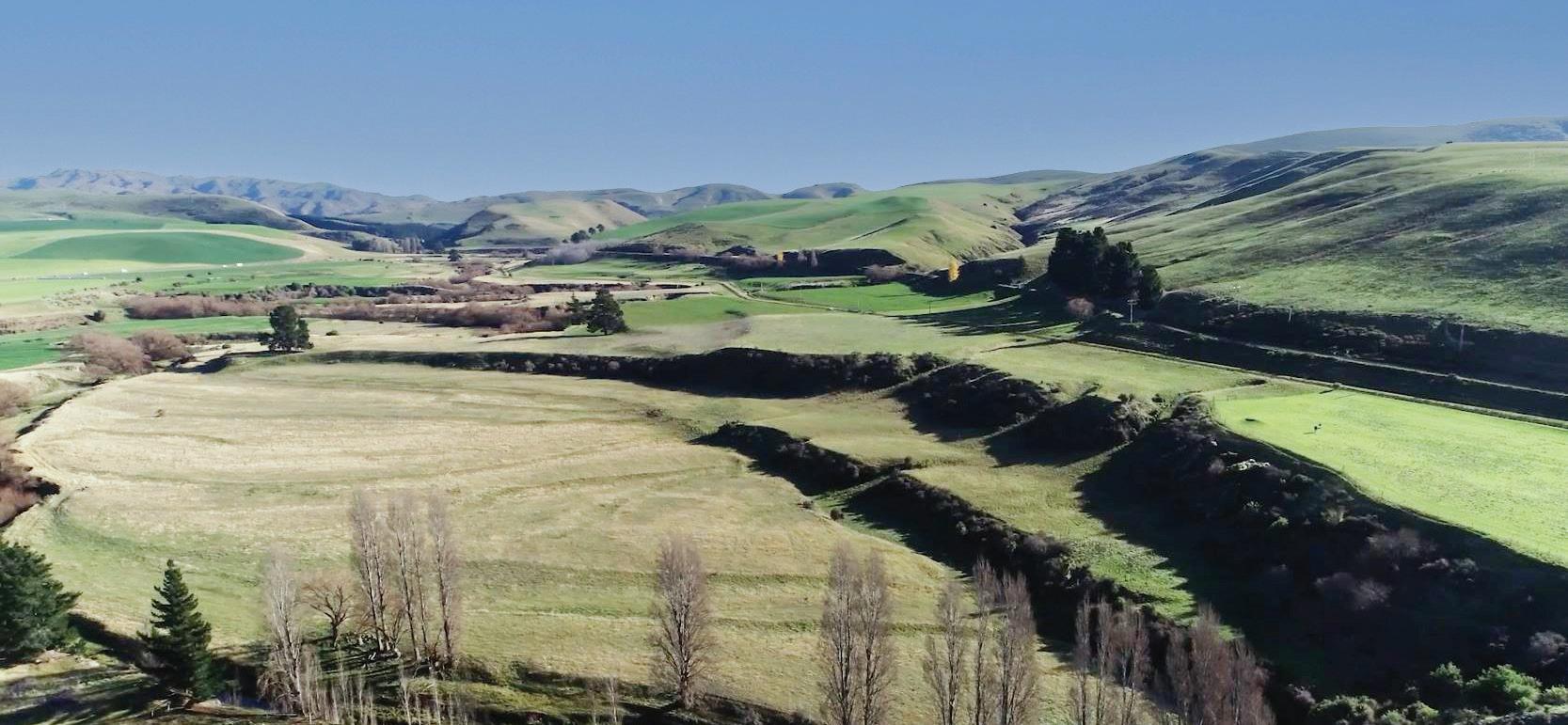
Waipara is internationally renowned for its thriving viticulture industry and the successful production of various grape varieties, resulting in the creation of esteemed wine labels year after year.
A highlight of this property is a large 157 mega litre dam, providing ample water resources. The property features two soil types: Glenmark 1, characterised by deep silt
www.pggwre.co.nz/RAN37496
loam, and Rang-32 (now Rangitata-32a1).
Weka Plains is part of the Weka Plains Irrigation Company, comprising 14 shareholders, with this property being one of them. Each shareholder possesses their own allocation of metered water from the dam.
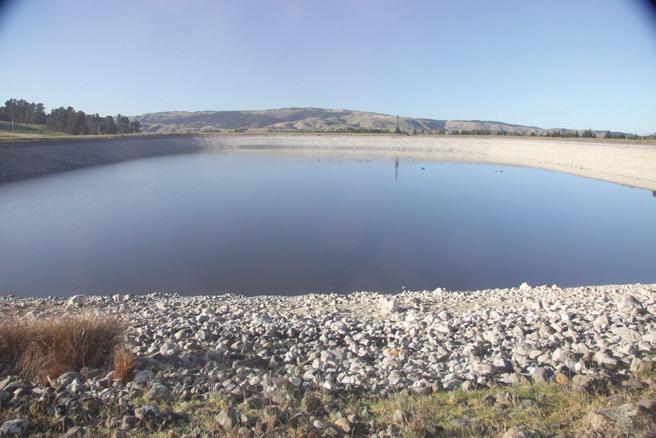
The decision to bring this property to the market was carefully considered by our vendor, it represents the final opportunity within this development. The sale offers the chance for a new owner to create their desired lifestyle or pursue their chosen business venture.
DEADLINE SALE (unless sold prior)
Closes 2.00pm, Thursday 27 July 2023
To obtain more information about Weka Plains or arrange an inspection, please reach out to the vendor’s exclusive agent. Act promptly to avoid missing out on this exceptional opportunity.
Bruce Hoban

B 027 588 8889
E bhoban@pggwrightson.co.nz
SOPHIE PREECE

LAST MONTH’S Organic & Biodynamic Winegrowers Conference was as much about communities, culture and intergenerational values as it was soil microbes, biochar and cover crops.

Threads of science, people, place, practice, and philosophy were interwoven throughout the three-day event in Blenheim, from Dr Hicham Ferhout’s discussion of the mutually beneficial symbiotic relationship between mycorrhizae and plant, to Johan Reyneke’s inspirational story of growing an organic farm and enriched community in Stellenbosch. “It’s more than just growing grapes and making wine,” says conference co-chair Bart Arnst in the wake of the successful event. “We are supporting communities.”
In an introduction to the event Mike Saunders — Organic Winegrowers New Zealand (OWNZ) executive member and Greystone viticulturist – said the 120 wine brands present at the event indicated the growth of organics, “which is extremely exciting”. The conference was designed around pillars of care, connect and create, he told the audience. “We will aim to create conversations around new research, different growing systems, and improved technology; we will look to care for our land and environment by providing practical ways of protecting and enhancing our soil, water, and plant resources; and aim to
connect you back to the land and history and culture, and to other growers and communities around you, so you can form the same symbiotic relationships our soil, plants, fungi and bacteria have.”
The three-day event carried myriad conversations on climate, nature and generational responsibilities to the land, including discussions on the wisdom indigenous knowledge can bring to modern farming practices. Care of people was a key component, with presentations from Santiago De Marco from the inspiring Hōhepa community in Hawke’s Bay, and from Dr Jessica Hutchings, talking about Māori food and soil sovereignty, and the Hua Parakore organic programme developed by Te Waka Kai Ora – the National Māori Organics Authority.
The extraordinary Elaine Chukan Brown, bringing their Unangan-Inupiaq ancestors to the stage, used memories of salmon fishing in Alaska as a nine-year old – awake to the messages sent over time by the people, the season, the cotton, the river, and the salmon – to describe the meaning of place, and what that concept means when it comes to wine.
The climate crisis was also a hot topic at the event, with Felton Road’s James Coleman describing the company’s
journey to reduced emissions, as a member of International Wineries for Climate Action, while Rebecca Mills of The Lever Room talked about the company’s approach to emissions measurement and reduction, as well as carbon certification.

It was also the topic of Elaine’s opening session, which emphasised the importance of wine companies taking action, including dropping fertiliser and fumigant pesticides, and enhancing permanent cover crops to maintain carbon sequestration. “We are in an impossible situation and the import of the next three days is immeasurable,” they told the audience. “You have the opportunity on your land to support climate action by moving away from these synthetics… and into no till practices. You’ll reduce your greenhouse gas emissions and increase your carbon sequestration on your land alone.”
More than ever, how we use our land is crucial, they said, noting that taking established vineyards and replanting is more effective in climate action than taking “raw” land, with longstanding plants that are sequestering carbon. “This is the hard one, because New Zealand is doing an amazing job of discovering new land, but disrupting that land, that has been raw, is a bit of a problem.”

There was plenty of fresh science exposed at the conference as well, including Hicham’s discussion of mycorrhizae and rhizobacteria, Dr Andrew Smith’s presentation of the work being done by the Rodale Institute,
and Dr Vinay Pagay’s work on biochar and technologies for monitoring water and carbon in vineyards.
Dr Amber Parker, director of the Centre at Viticulture and Oenology at Lincoln University, climate change researcher, and conference attendee, applauds the blend of social and technical talks at the event. “And of course, it was so great to connect up with industry and likeminded people who have the environment, climate change and respect for the land at the forefront of what they think and do.”
That was a highlight for Bart as well. “The get together of all these people with likeminded ideas, and how we encouraged those who have not dipped their toes into this realm.” Introducing overseas guests to the region was also memorable, with their reactions to the landscapes and people of New Zealand a reminder of “what we are super lucky to have”, he says. “You get a bit complacent about where we are and what we have.”
NEW GENERATIONS are toppling Baby Boomer wine buying habits, while wine consumers in general are increasingly assertive with a wine list or segment. That was the message from Master Sommelier Cameron Douglas at June’s Organic & Biodynamic Winegrowing Conference, heralding both opportunity and risk for industry members.
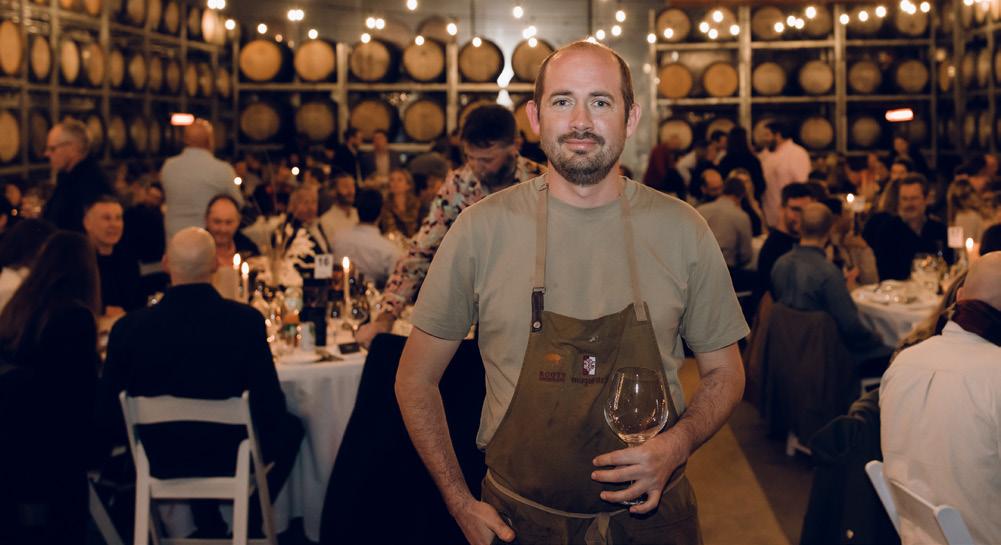

“Knowledge uptake, discovery of wine styles and understanding of wine and how it is perceived is evolving, creating new tipping points, allowing wine drinkers to move into other bubbles,” Cameron said in his talk on ‘international image, integrity and our future’. He shared insights from the market, and from sommeliers in Melbourne and London dealing with both an onslaught of options and increased buyer autonomy. “Wine and beverage drinkers have become much more certain about what they want to imbibe,” he said. “They have higher expectations of the product they choose and are not backwards in coming forwards in how they rate a wine.”
Sommeliers increasingly find customers have researched the winemaker, viticultural management, and backstory of a wine, using varied and evolving information sources, from podcasts and magazines to a chat with a wine specialist or friends, he said. “Sommeliers are sometimes doing a little less selling, just more specific wine buying.”
Meanwhile, wine lists are arguably getting smaller and more specific to demographics, Cameron said, with
Guests gathered around a roaring fire outside the Coterie Winery as the Organic & Biodynamic Winegrowing Conference’s Organic Feast began. Sparkling lights, sparkling wine and a sliver of moon set the scene, while singer-songwriter Anna Coddington took centre stage. The feast itself was held in the Coterie barrel hall with guest chef Giulio Sturla (pictured), assisted by Sander De Wildt and his
sommeliers reporting that the appetite for organics and biodynamic wines was far greater in some parts of town than others. “Each state, town, suburb and dining or retail space is different, and can attract a different set of customers, in a bubble or not.”
Cat Lomax, who heads the Marks & Spencer’s wine buying team, told Cameron that Generation Z has a completely different mindset about alcohol. While older generations often saw a glass of (value for money) wine as a way to relax at home at the end of the day, perhaps with food, the health-conscious Gen-Z was far less likely to think about drink at home. Alcohol is instead for celebrations, and “they are much more experimental” and “much, much more willing to spend more money”, she told him. “When they are celebrating, they want to show they are celebrating.”
The industry needs to be prepared for such tipping points on the horizon, Cameron said, emphasising the continued need for education at all generation levels, including around terms like organic and biodynamic.
“Change isn’t just coming, it’s here now. Millennials, Gen-Z, and soon enough Generation A, begin to dictate more of what they are looking for in a beverage. The classic wines are safe, for now, yet we need to ask this question: who is going to be drinking your wine – what variety and style – in two, five or ten short years from now?”
Totalling 76 beds and Healthy Homes compliant, these two properties in central Blenheim earn a weekly eqivalent of 18% per annum gross.
One property features four separate, recently built, self-contained, relocatable dwellings on 1,570 sqm, providing very comfortable living conditions and allowing multiple options for future development.
The other property boasts commercial frontage to Main Street and SH1, road access front and rear, three buildings of varying age on 1,102 sqm and consent for extensive development.
Available for purchase together or separately.
• Commercial & Industrial Electricians
• Automation & Control systems
• Winery Upgrades
• Winery Design & Build
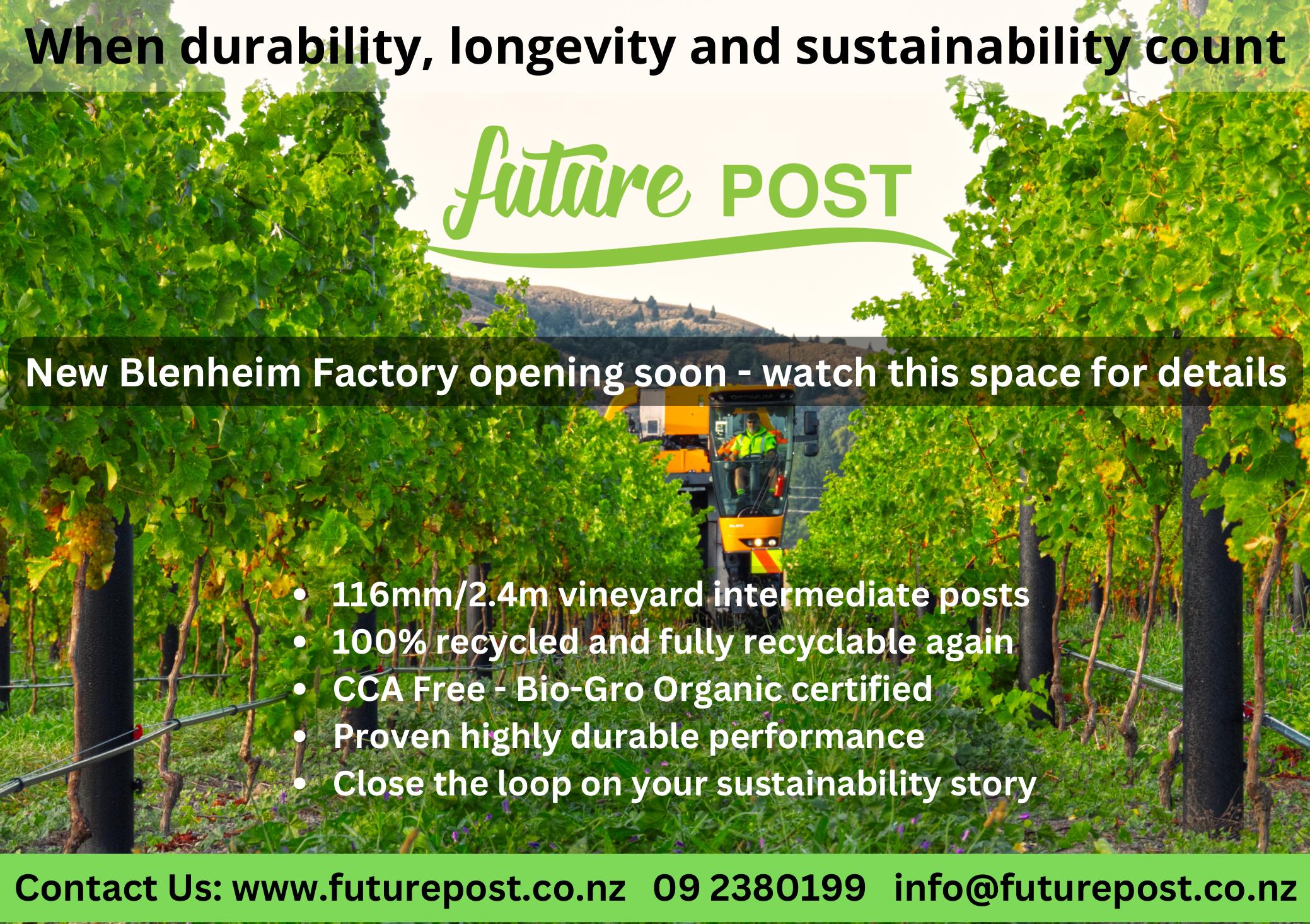
24/7 EMERGENCY CALL OUT
Phone: 0274 497 689
Tim Crawford 021 704 833 tim.crawford@nzsir.com
Michal Wells 021 420 428 michal.wells@nzsir.com
Email: admin@electratech.co.nz
Website: www.electratech.co.nz

AFTER MORE than two decades “slinging fizz” in busy bars in the big smoke, an Auckland sommelier is learning firsthand what it takes to make premium wines in Marlborough.

Benjamin (Benji) Smith caught the “hospo bug” at 18, when he started working part-time at the Copper Room in Takapuna on Auckland’s North Shore, while doing premedicine studies.
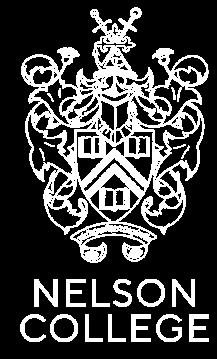

It wasn’t long before he realised medicine wasn’t for him, choosing instead to chase back-to-back winters between Colorado in the United States and Auckland, revelling in the late nights and vibrant social scene that go hand in hand with the hospitality industry.
The sudden death of his father after a short battle with cancer about 10 years ago, was devastating for Benji, who found himself at a loss. “It was a huge shock, he was only 63, so there was that element of lost time, it was the lowest
point of my life.” That low point was a catalyst for a change for Benji, who after taking time off work to grieve, decided to take his career in hospitality seriously and enrolled with WSET to study Levels 1, 2 and 3. “I wasn’t even looking at the wine side of things initially, but as we got into the course and beyond the basics and started learning about the notable regions in France, the wine varieties around the world, and the intricacies of classic reds, I started getting really fascinated by wine and wanting to learn more.”
Armed with his new qualifications, Benji started applying for jobs and ended up as the beverage manager at the popular O’Connell Street Bistro in Auckland. Through his role he started meeting winemakers and restaurateurs from around the country, including Arbour Restaurant coowner Liz Buttimore. Fast forward a few years and the two became a couple, and eventually Benji followed his heart and moved to Marlborough in early 2020.
While it was love that brought Benji south, ultimately it was New Zealand’s first lockdown during the Covid-19 pandemic that saw him jump from hospitality to the wine industry. With restaurants and international borders closing, Benji picked up a job for vintage 2020 at Two Rivers and The Wine Studio. What was intended as a stopgap to get him through lockdown became something more, and in August that year he joined the team at Te Whare Ra. Almost three years later, he’s still there. “It’s been a brilliant introduction to winegrowing, because with such a small team I get to do a bit of everything from in the vineyard to the winery,” Benji says. “Anna and Jason’s passion for organic and biodynamic winegrowing is so infectious, they’re a great team. I feel super lucky to be learning from two of the best winegrowers in the country.”
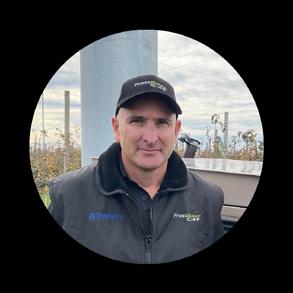
He’s juggling full time work with part-time study (Diploma in Wines) and while nothing about his current situation was planned, he couldn’t be happier. “The lowest point in my life brought me in this direction and now I’m having the best time in my life, I can’t picture it any other way.”
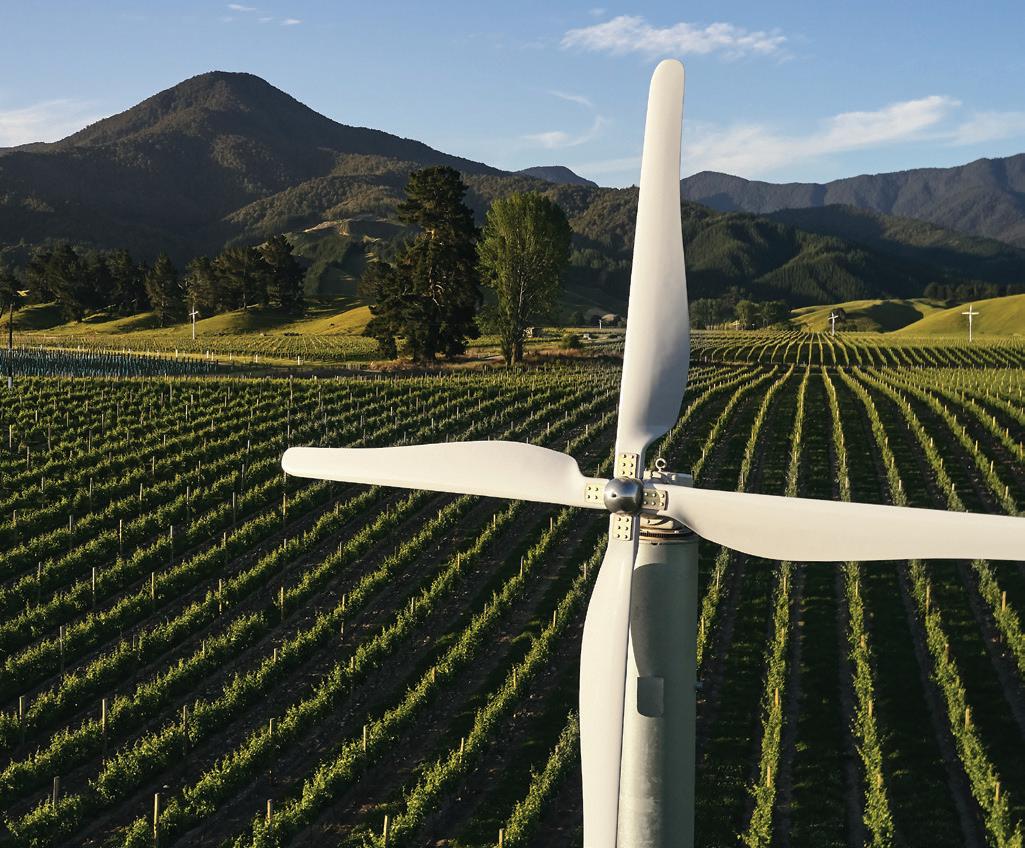
“It’s been a brilliant introduction to winegrowing, because with such a small team I get to do a bit of everything from in the vineyard to the winery.”
Benji Smith
AROUND 850 Marlborough vineyards will require Freshwater Farm Plans when new regulations are rolled out in the region. But Marlborough District Council (MDC) environmental scientist Matt Oliver says there’s “no need to panic”, with plenty of time for growers to prepare, resources to tap into, and the ability to work in with neighbours to improve planning. “I think there are some huge opportunities for viticulture,” he says of the plans, which require operators to identify, measure and mitigate their impacts on freshwater. “There are some good innovative thinkers already in the industry who are looking at doing things differently and experimenting.”
Viticulturist Tracy Taylor, who is training to be a farm planner and certifier, as well as biodiversity consultant, says the requirements of each environment plan will be dependent on the specific catchment issues, so it’s not a “one size fits all” approach. “The environmental issues Southland has, are not the same as Marlborough.”
Tracy and Matt agree that while grape growers have far fewer impacts to manage than dairy farms, for example, there is plenty of room for improvement. Tracy would like to see better nutrient management, and better sediment containment on vineyards that use livestock in winter, as well as the development of more riparian plantings, such
The farm plan regulations, part of Government’s 2020 Essential Freshwater package, were released last month, and will take effect in Southland and Waikato on August 1, with operators given 18 months to develop a plan. Other regions will be progressively rolled out, with Marlborough sitting a little over halfway down the queue with a start date of mid2024.
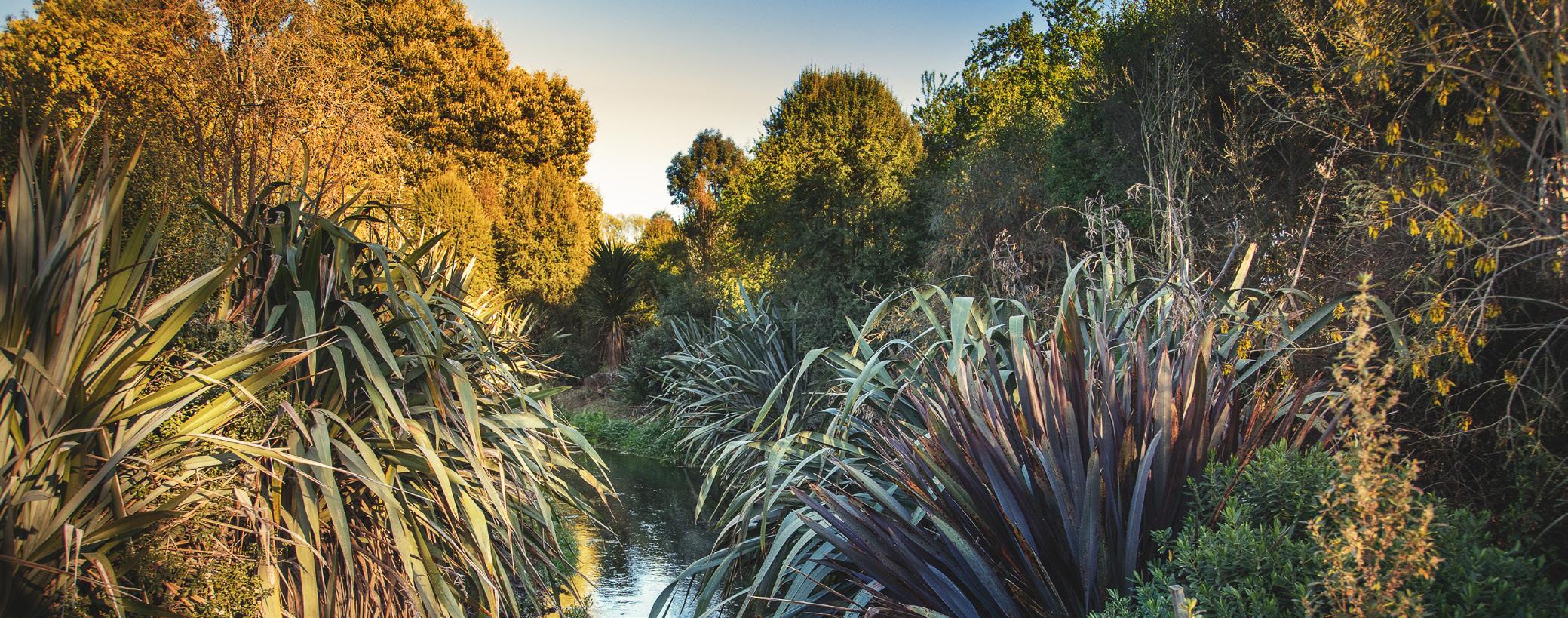
Farmers with 20 hectares or more in arable or pastoral use, 5ha or more in horticultural use, or 20ha or more of combined use will need to develop and certify freshwater farm plans, and will subsequently be audited to ensure plans are being followed. Matt says council will produce catchment documents that consider issues specific to each area to help inform plans, with risks in pastoral areas like the Rai Valley higher than Marlborough’s main viticulture zones. For many vineyard properties with no surface connection to water, the plans and process will be “relatively straight forward”, Matt says. “Whereas if you have a big, complicated property with a whole lot of streams, then the workload will be greater.”
as sedge species that will increase habitat while helping manage runoff in rain events.
Matt emphasises that vineyards have very low nutrient impacts on freshwater when compared to dairy farms, and he’s grateful to have vines on the Wairau Plains. “If Ernie Hunter hadn’t planted Sauvignon Blanc, we’d have dairy farms here.” But while grapegrowers use little nitrogen, the places it is used tend to have “quite a bit of vulnerability”, such as light soils. “So it is the vulnerability of the soil, not just the amount.”
Other risks on vineyards include bare soil that washes out to streams, and he is particularly concerned by the lack of control when it comes to sediment from vineyard developments, which are not covered by Sustainable Winegrowing New Zealand (SWNZ) as they are not producing areas. It is likely council will take that into account in updates to the Marlborough Environment Plan, Matt says.
New Zealand Winegrowers (NZW) general manager sustainability Edwin Massey says the regulations are part of
“We have to work with our members to help them meet these regulations as best as possible.”
Edwin Massey
a “really good goal”, but NZW had hoped to use the proven success of SWNZ to manage the process for winegrowers, reducing transaction costs, given the low impact of vineyards. "Now we have to work with our members to help them meet these regulations as best as possible. This work will have two objectives – to explore how we can use SWNZ to help members meet regulatory planning requirements and to work with Government to greater enable industry programmes like SWNZ to play a more comprehensive role in certification. This work is in its early stages."
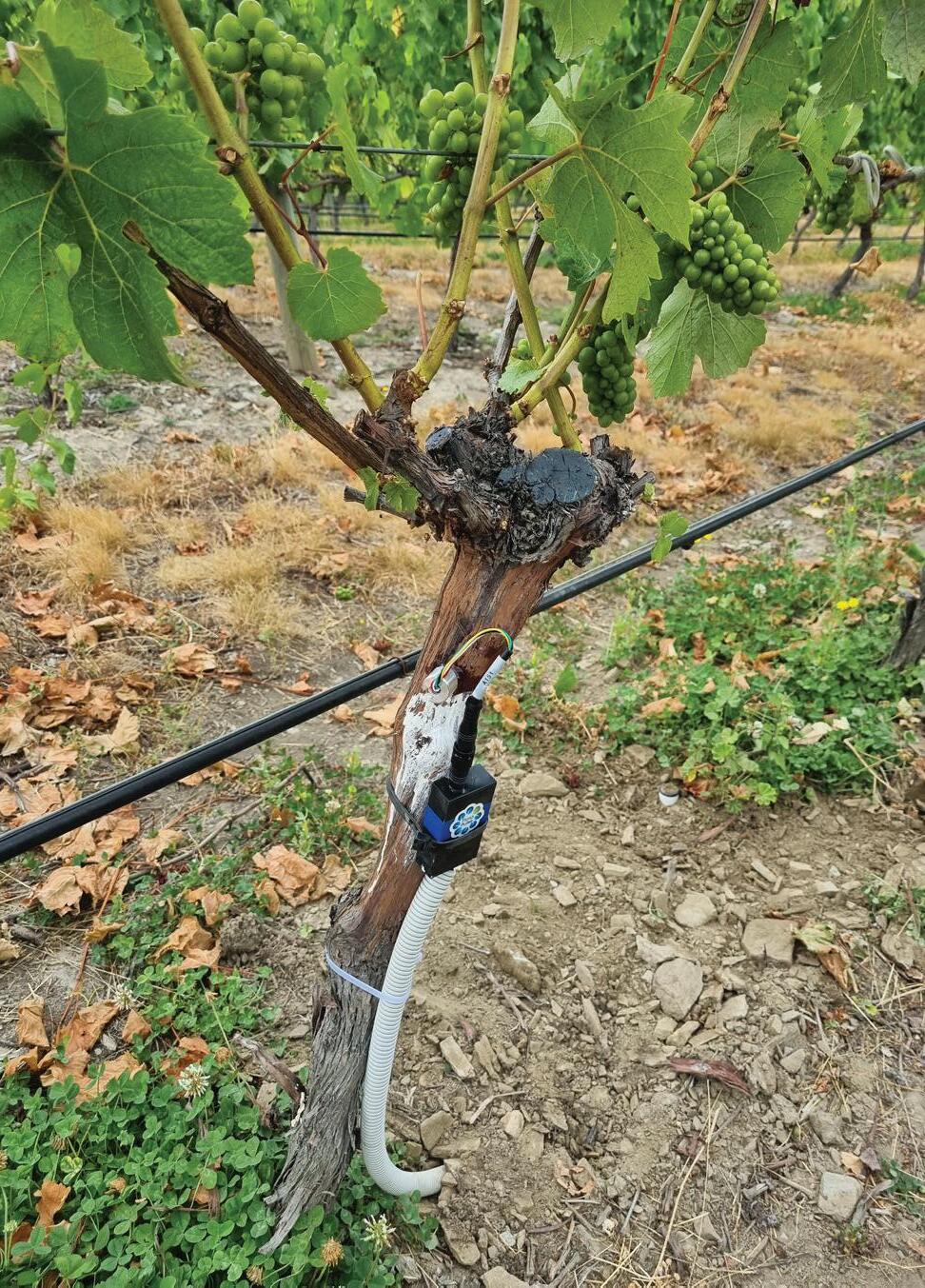

Edwin notes that there are two parts of the Government’s Essential Freshwater Package, with the first around better understanding the visions and values of how water should be used in regions, followed by Freshwater Farm Plan aspect “which helps achieve those visions and values”. The MDC is undertaking the first part of the process with a “really active consultation at the moment about what people from Marlborough want their water to look like in the future”, Edwin says, urging members to engage with that process. Te Mana o te Wai, part of the National Policy Statement for Freshwater Management, gives a clear hierarchy on freshwater, with the health of the waterway the first priority, quality of water for consumption second, and economic use in third place.
Edwin notes that GIS mapping will be key element of farm planning. “Having really good quality maps of your farm and its waterways is really important. SWNZ
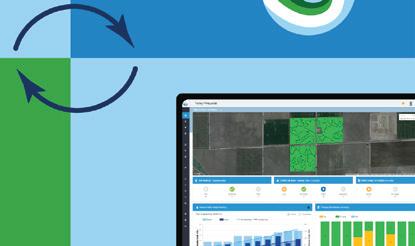
doesn’t currently have GIS capability but if we are going to play a part in this mapping, that’s a capability it will need in the future.” He also cautions members with mixed use properties -- such as a sheep farm with a vineyard -- to seek advice beyond SWNZ, “because the farm plan has to be broad enough to cover all the land uses”.

Whether operators choose to develop their own farm plan, hire a planner, or tap into SWNZ resources, winegrowers have plenty of experience in recording and submitting data, as well as the audit process through SWNZ, he says. And the freshwater plans and audits will help showcase the industry’s environmental ambitions. “When we think of the wine industry goal of being world leader in the efficient use and protection of water quality, this is a great way to demonstrate that.”



The Ministry for Environment has released substantial information about the Essential Freshwater policies and regulations, including on implementation guidance for Freshwater Farm Plans. Find out more at environment.govt.nz/acts-and-regulations/freshwaterimplementation-guidance.



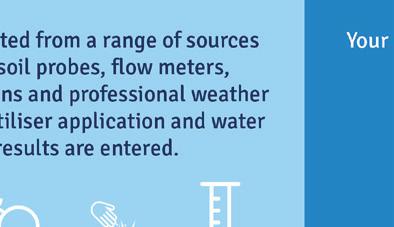



Dr Edwin Massey and Marlborough District Council staff will speak about the plans at Grape Days in Marlborough on July 18. nzwine.com/en/events/grape-days-2023
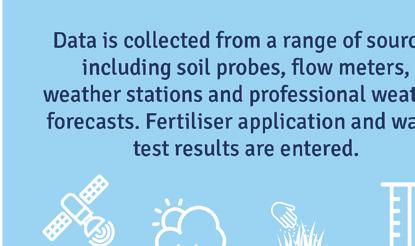

COMPLETING THE biosecurity vineyard register is the simplest action you can take to help manage biosecurity risks in your vineyards and ensure NZW can communicate with you in an emergency situation.
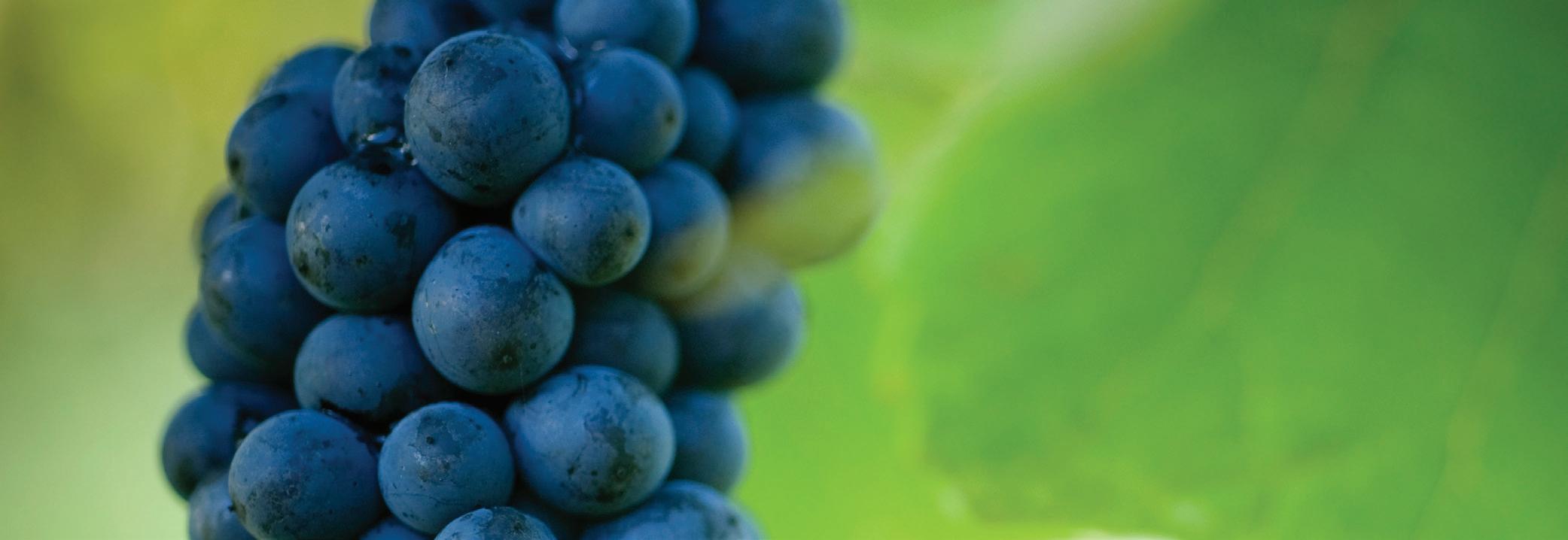
Cyclone Gabrielle wreaked havoc in Gisborne and the Hawke’s Bay in February this year, knocking out phone and internet communications for several days to weeks in some areas and impacting vineyards in both regions – in many cases causing severe damage. As reports of the potential scale of the situation began to emerge, the New Zealand Winegrowers (NZW) board and senior leadership decided to stand up an Emergency Response.
Requests for information began to flow in, from the Government and agencies wanting to understand how many vineyards were affected, what types of damage were sustained and to what extent, and what help was required. With limited communications by phone and email, NZW relied heavily on the information held in the Biosecurity Vineyard Register to estimate which vineyards may have been impacted. Based on location information held in the register, and proximity to the major rivers that burst their banks and caused widespread flooding, we were able to generate a list and map showing properties likely severely affected, then work towards making contact to check in with them. The Hawke’s Bay and Gisborne Winegrowers teams were able to follow up on the ground and the list was refined over time as impacts became known, and more detailed information was able to be provided to government agencies and support groups to assist with the response and recovery efforts.
This unfortunate situation has highlighted again the importance of the Biosecurity Vineyard Register data, for purposes outside of biosecurity response – it is vital in any industry emergency response of scale. NZW strongly

• The 2023 total producing area is 41,860ha; a 1% increase on the preceding year
• The 2023 total producing area by wine type is: red wine - 7,698ha ; white wine - 34,162ha• There are 2078 active vineyards recorded in the register, with the average vineyard area being 20ha
• Marlborough remains the largest producing region at 29,654ha - 71% of the total producing area
• Sauvignon Blanc remains the most significant variety at 27,084ha - 65% of New Zealand’s total producing area
58% of the total production area is Marlborough
• Sauvignon Blanc at 24,221 ha. This in itself could be a significant biosecurity risk.
encourages all members to ensure all planted vineyards are registered and entries are updated annually, regardless of whether the vineyard is currently in production or not. The cyclone situation eventually turned up some vineyards that were not on the register – generally newly planted or young vineyards not yet producing. As NZW had no record or means of contacting them, it meant they were not included in initial damage estimates or offered assistance until word of mouth eventually reached the viticultural consultants engaged to provide support to affected properties. It is likely that there are still other vineyards impacted by the cyclone that aren’t registered and have therefore not had access to the same offers of support as those on the register.
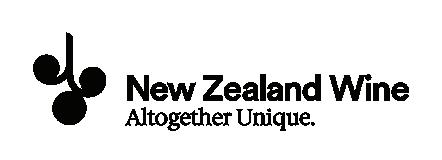

All vineyards owned by NZW members are required to have an annual biosecurity vineyard registration completed each year. This includes all producing vineyards, newly planted vineyards that will produce a crop within the next
three years, and any non-productive vineyards that are still in the ground, and likely to be used for commercial wine production in the future. All vineyards (grower or wineryowned) contributing grapes to wines participating in NZW events and activities are also required to complete the register annually.
Entering vineyard details in the register and updating them each year ensures that if a new vineyard pest or disease arrives in New Zealand, or an emergency response of any nature occurs, NZW can contact all growers in the atrisk area as soon as possible. Growers will also be included in communications and informed of progress as a response occurs.
Annual completion of the register by growers enables NZW to maintain an accurate record of vineyard names, locations, planted area, grape varieties grown, and planting density. It also enables estimation of future plantings. When completing the registration, it is important to ensure the physical address of the vineyard is correct so the location can be verified.
The 2023 Biosecurity Vineyard Register was due to be completed by 30 June 2023. Completing the biosecurity vineyard register is the simplest action you can take to help manage biosecurity risks in your vineyards and ensure NZW can communicate with you in an emergency situation.
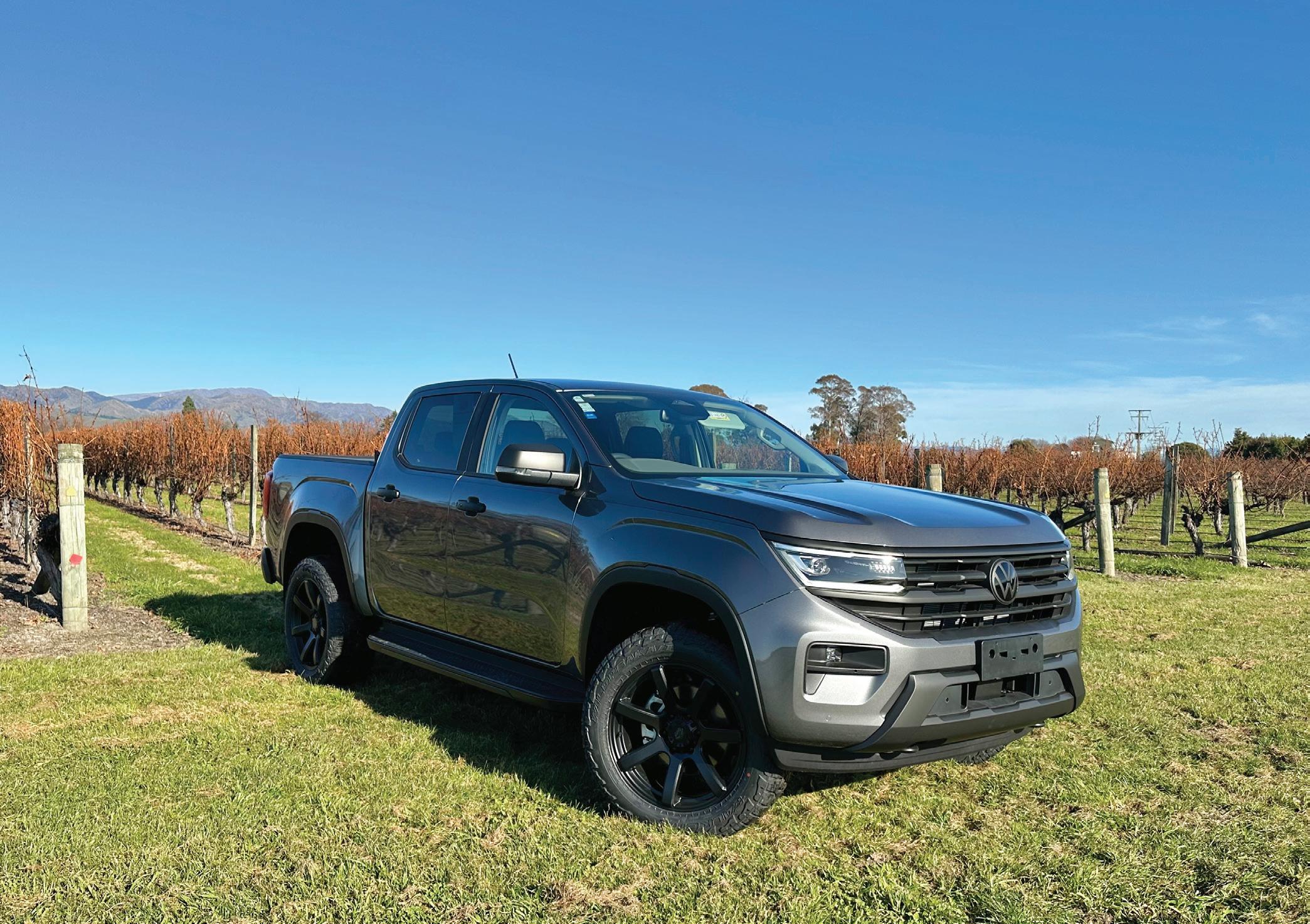
The register is due to be completed by June 30 each year. As NZW prepares to launch the new members’ portal (developed by Project Kārearea) in August, the biosecurity team will follow up incomplete submissions throughout July, with the aim of having all submissions in prior to the new system launch.
Individual member’s data is treated confidentially, and only anonymised collated information is released in the form of the Vineyard Report. The Vineyard Report is published annually and is used to collate key industry data and statistics, including the national and regional industry ‘snapshots’. The NZW marketing team uses it when communicating with the media and other trade organisations. It is also used to inform other resources such as the New Zealand Wine textbook, varietal guides, and regional guides. Over time, the data collected in the reports also provide a clear record of the industry’s growth and allows trends and changes in varieties and regions to be identified.
The Vineyard Report 2023 is now available on the members page of nzwine.com.
If you need assistance with completing vineyard registration, email vineyardregister@nzwine.com or contact Kerrie Hopkins, Biosecurity Advisor, on 027 554 7776.
Unemployed forestry workers could prove a ready and skilled workforce for Marlborough’s wine industry, says the executive officer of the Top of the South Wood Council. Angela MacKenzie says a downturn in New Zealand’s forestry industry – thanks to plummeting log prices, high shipping costs, and the export of salvaged trees from storm-struck blocks around the country – has resulted in some harvesting crews being laid off work or on reduced hours in the region. One Marlborough wine company has already employed a crew to harvest a 2-hectare block in preparation for a vineyard development, helping keep some people employed in “pretty tough” times, Angela says. “This is very much the wine industry helping another industry.”
Any vineyard owners with work for a harvesting crew, or for skilled machinery operators, can contact Top of the South Wood Council at EO@totswoodcouncil.org.nz
The Sale and Supply of Alcohol Act (Community Participation)
Bill could be a major blow for New Zealand wine tourism, says NZW chief executive Philip Gregan.
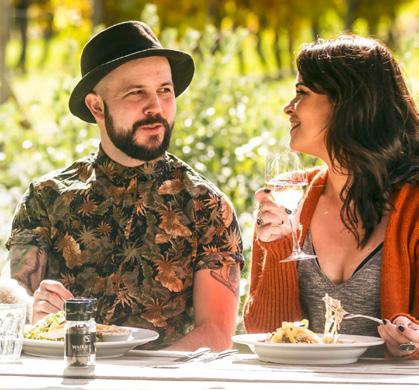
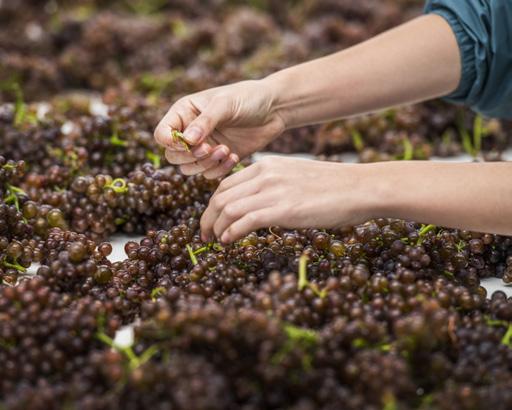
The bill proposes that licensing authorities could decline a renewal of a license where it is inconsistent with conditions on location or licence density in the relevant Local Alcohol Policy (LAP). “We support the intention of the bill, which is to increase community involvement and to reduce alcohol harm. However, the unintended consequence, which we highlighted to the Committee, is that this bill could potentially have a huge impact on wine tourism and wine trails.” The Justice Select Committee has reported back on the bill, which could mean some cellar doors will be unable to sell wine and be forced to close, Philip says. “If an LAP imposes proximity provisions relating to sites such as schools or a church, or there are restrictions on the density of licenses. These provisions would apply irrespective of whether the cellar door is well run or valued by the community.” Cellar doors are one of the lowest risks licenses, where wine is available to be tasted, enjoyed, and purchased, he adds, calling it another blow to wine businesses, at a time when they are already struggling with surging production costs, labour shortages, and increasing excise tax.
Climate change, cyclone response, downy mildew and Freshwater Farm Plans are just some of the timely topics on the table at this year’s Marlborough Grape Days on July 18. The programme also includes trunk disease, vineyard costs, vintage 2023 and a research update , with topics curated for the region’s grapegrowers. For more information: nzwine.com/grape-days.
Dr John Barker is “uniquely qualified” for his new role as director general of the International Organisation of Vine and Wine, says New Zealand Winegrowers chief executive Philip Gregan. “Dr Barker is an outstanding New Zealander and has a deep appreciation of the history and traditions of the global vine and wine sector, but also recognises the current opportunities and challenges that our industry is experiencing today.” John, who was formerly NZW’s general counsel and general manager advocacy from 2004 to 2014 and has actively participated in the OIV for 17 years in various roles, says it is essential for the global wine sector to have a modern, effective and representative international organisation. “I look forward to working together on the opportunities and challenges facing our industry like the digital economy, climate change and the role of wine in society”.
Available now: Winter 2023 Summer 2023/2024
2023 Testimonials of our crew: “Best Crew ever!
Setting new records in speed and quality”
Alan & Richard Holdaway – Alfa Lea Horticulture Ltd
“Workers arrived on time, they’re hardworking, reliable and trustworthy plus they do a good job”
John Talbot – Heards Vineyard
Contact Byron Stephenson: 021 996 969
zerolimits115@gmail.com Focus
Winter in Marlborough brings a concerted effort across the industry to prune and prepare nearly 30,0000 hectares of vineyards for the new growing season. Our industry is gritty and agile, which has helped it scale in a relatively short space of time. We’ve also innovated and specialised, and the relationships between growers, wine companies, and Recognised Seasonal Employer (RSE) scheme employers has helped carry us through some challenging times in the past few years. The RSE scheme is often held up globally as an exemplar labour mobility scheme. However, there is always room for improvement and the government review of the scheme has been viewed as an opportunity to improve it for the people, communities, businesses, and industries that rely on it.
Wine Marlborough works closely with stakeholders of the RSE scheme through the Marlborough Labour Governance group. This group has representation from growers, RSE employers, the Labour Inspectorate, Immigration New Zealand (Pacific Programme), and New Zealand Ethical Employers (NZEE). Our focus is to understand the needs of our industry and share and connect key information across stakeholders. If you are interested in finding out more, please reach out to advocacy@winemarlborough.nz.
NZEE has been one of the key industry bodies, alongside New Zealand Winegrowers (NZW), informing the government review of the RSE scheme. This month NZEE hold their annual conference, Empowering Ethical Employment. Wine Marlborough and NZW will be at the conference, and it would be great to have growers and wineries join us there. NZEE will launch their Workforce Planning Framework and Human Rights Due Diligence Framework. These frameworks are highly relevant to supply chain assurance and ongoing business sustainability; important areas for the wine industry to engage on.
The regulations on freshwater farm plans were released in June, with more information from NZW to follow. Edwin Massey from NZW will be speaking on freshwater farm plans at Grape Days this month.
If you have a dam on your property, now is the time to check whether new regulations apply to you. The Ministry of Business, Innovation and Employment announced the Building (Dam Safety) Regulations 2022 in May last year.
The regulations will come into force in May 2024 and set out the minimum safety requirements for dams in New Zealand. This will provide a consistent, nationwide framework to protect people, property and the environment from the potential impacts of dam failure, both in the immediate vicinity and further downstream.
These regulations will apply to all classifiable dams. A classifiable dam means a dam that:
• Has a height of 4 or more metres and stores 20,000 or more cubic metres volume of water or other fluid; or
• Has a height of 1 or more metres and stores 40,000 or more cubic metres volume of water or other fluid.
From 13 May 2024, classifiable dam owners will need to confirm the potential risk their dam would pose in the event of failure, put in place dam safety plans and undertake regular dam inspections.
Over the coming months Council’s Dam Safety team will contact those who have sufficiently large water bodies on their land to confirm whether they have a classifiable dam, and to help them prepare for the new regulations.
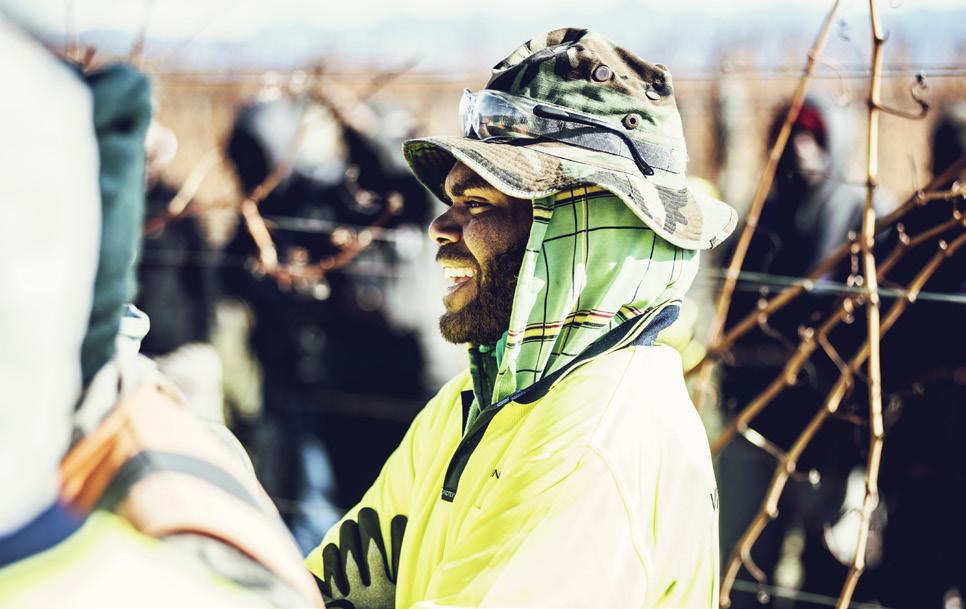
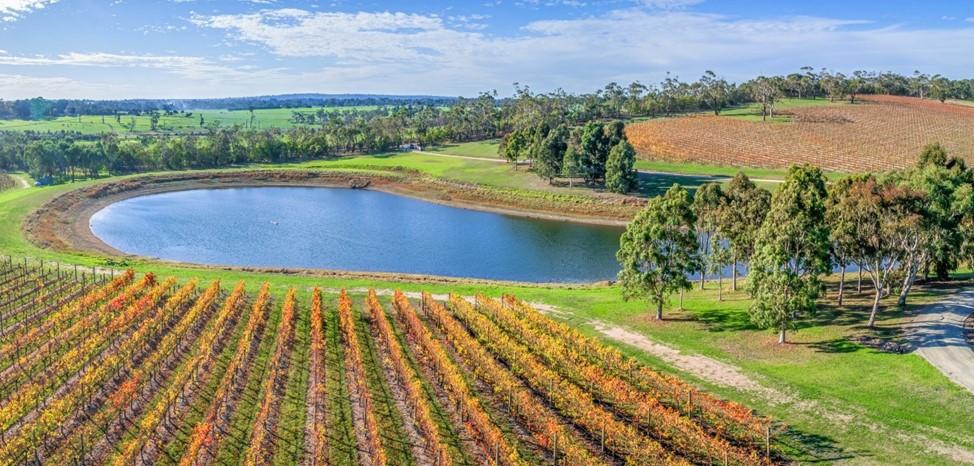
For further information visit www.marlborough.govt.nz/services/buildingservices/dam-safety or email damsafety@marlborough.govt.nz


To have your event included in the August 2023 Wine Happenings, please email details to sophie@sophiepreece.co.nz by July 20. For more information, please go to the website supplied or email sarah@winemarlborough.nz
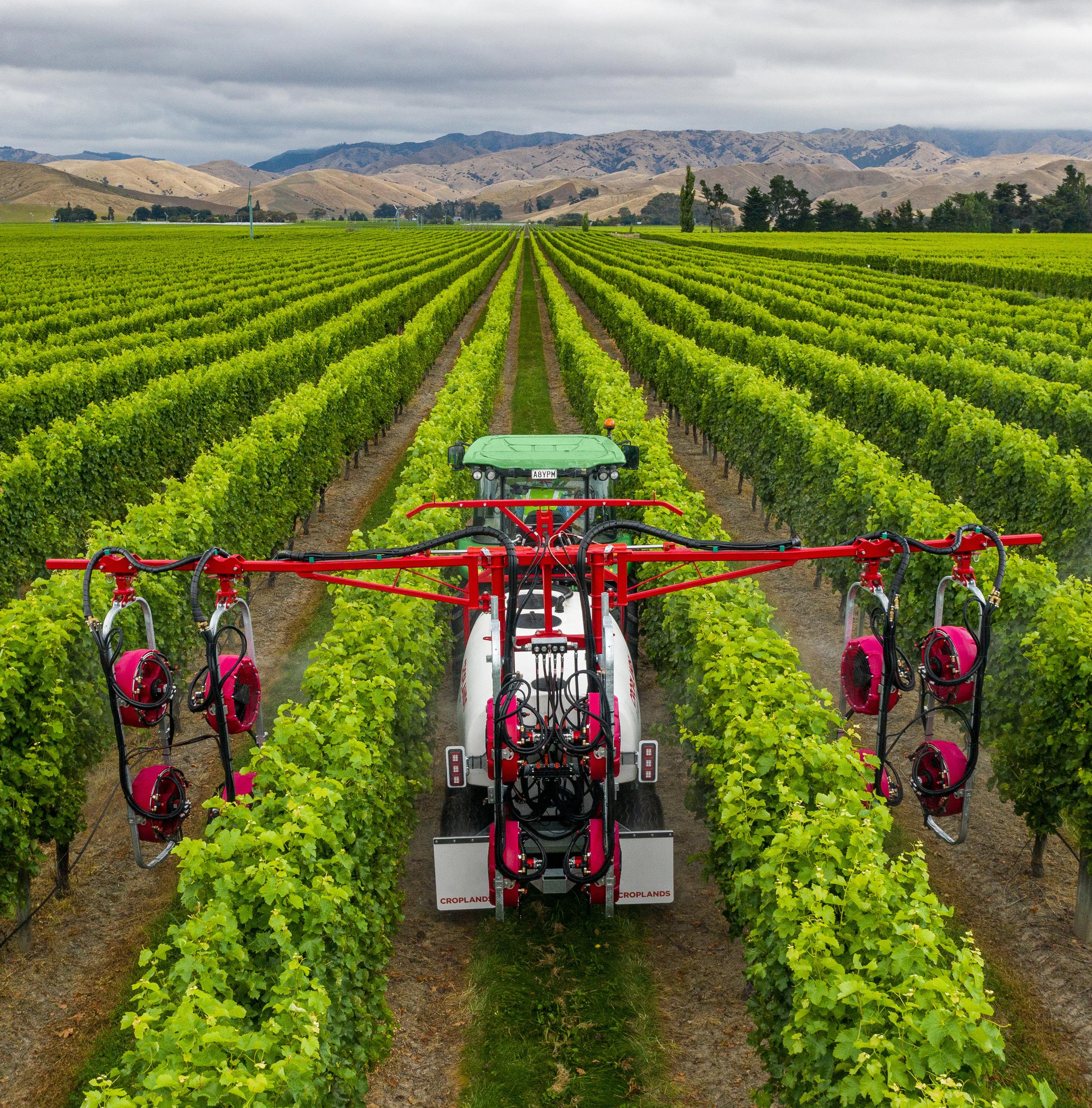
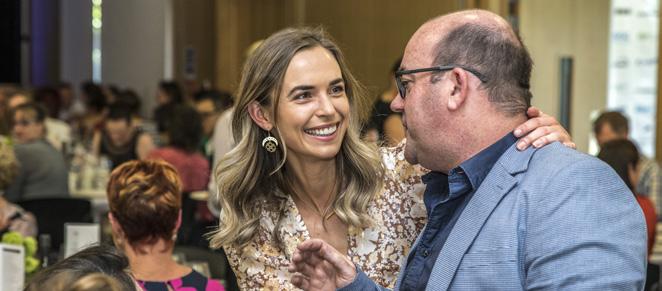
JULY
6 Young Viticulturist 2023 Competition Marlborough (nzwine.com/en/events/young-vit)
14 Matariki public holiday
18 Grape Days Marlborough (nzwine.com/grape-days)
20-23 Marlborough Book Festival (marlboroughbookfest.co.nz)
21-22 Winetopia Auckland (winetopia.co.nz)
AUGUST
28-30 Spray Days Marlborough (nzwine.com/members/events/workshops/spray-days)
30 Young Viticulturist National Final, Hawke’s Bay
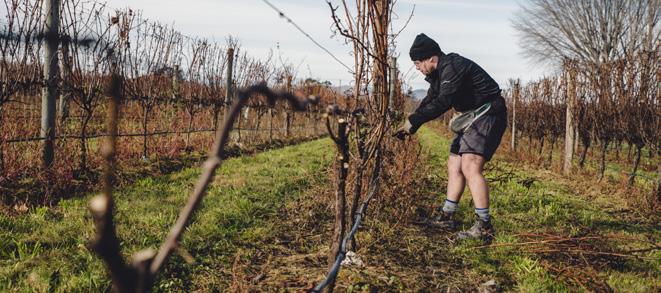
SEPTEMBER
for the Marlborough

Now building, servicing
For more information or contact the Malborough’s

13 Tonnellerie de Mercurey Marlborough Young Winemaker Competition 2023 (www.nzwine.com/en/ events/young-vit/)
Jeremy Watts | 021

15 Marlborough Winegrowers board election – voting begins (marlboroughwinenz.com/about)
OCTOBER
2 Marlborough Winegrowers board election – ballot papers due back by midday (marlboroughwinenz.com/about)
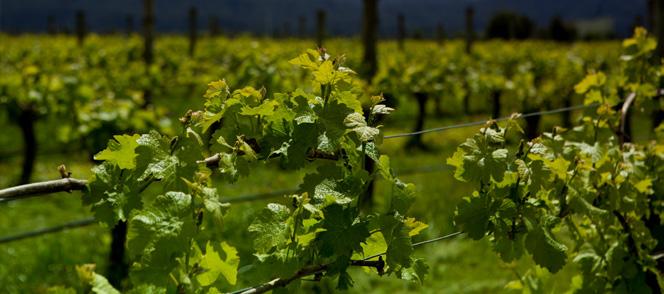
3 Marlborough Winegrowers board election – results notified
5 - 6 Aotearoa New Zealand Chardonnay Symposium (hawkesbaywine.co.nz/symposium)
5 NZSVO Technical Workshop


31 Tonnellerie de Mercurey New Zealand Young Winemaker of the Year National Final. Canterbury
NOVEMBER
1 New Zealand Wine, Altogether Unique - A Celebration, Ōtautahi Christchurch
8 Marlborough Winegrowers AGM 17 Marlborough Wine Show Celebration
SOLD LOCALLY



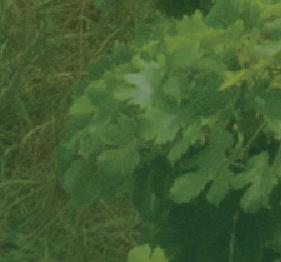

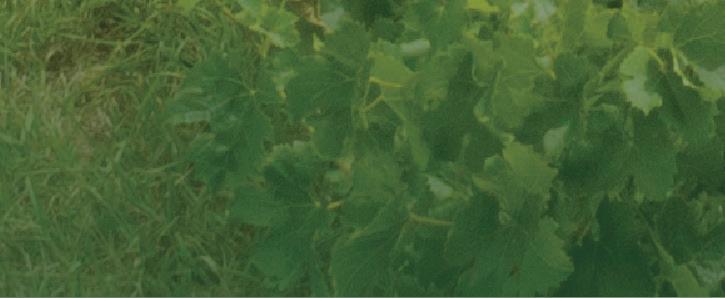
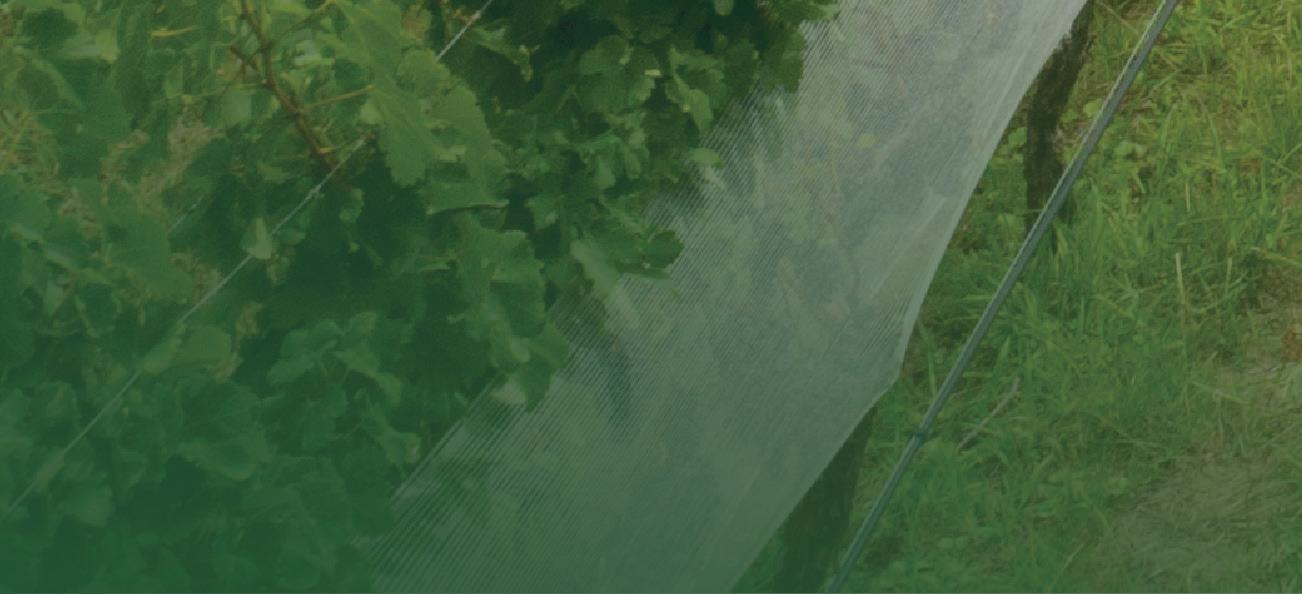



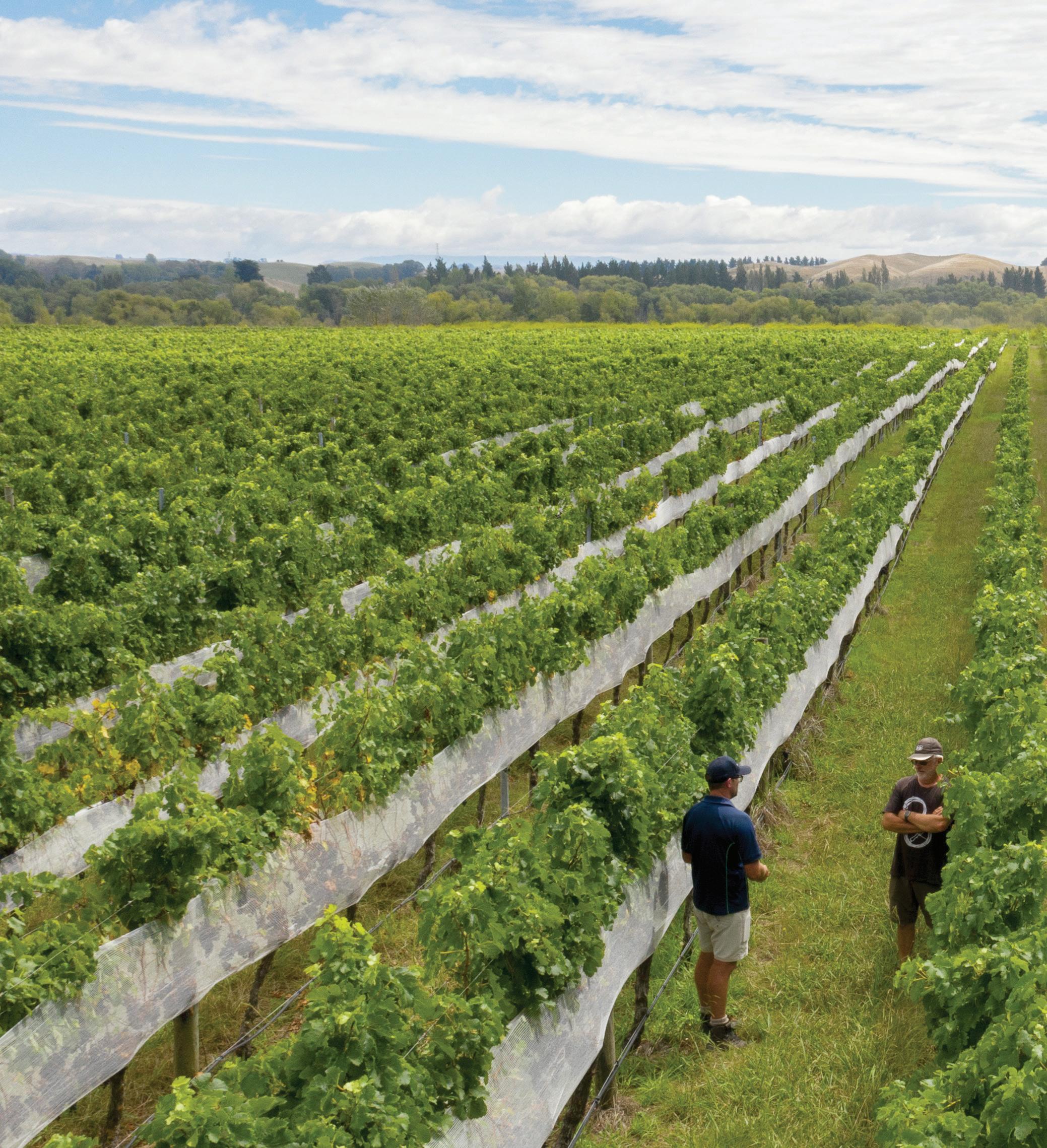
Keeping our ngers on the pulse, we work alongside and share insights with growers and industry members to help further develop the viticultural industry.
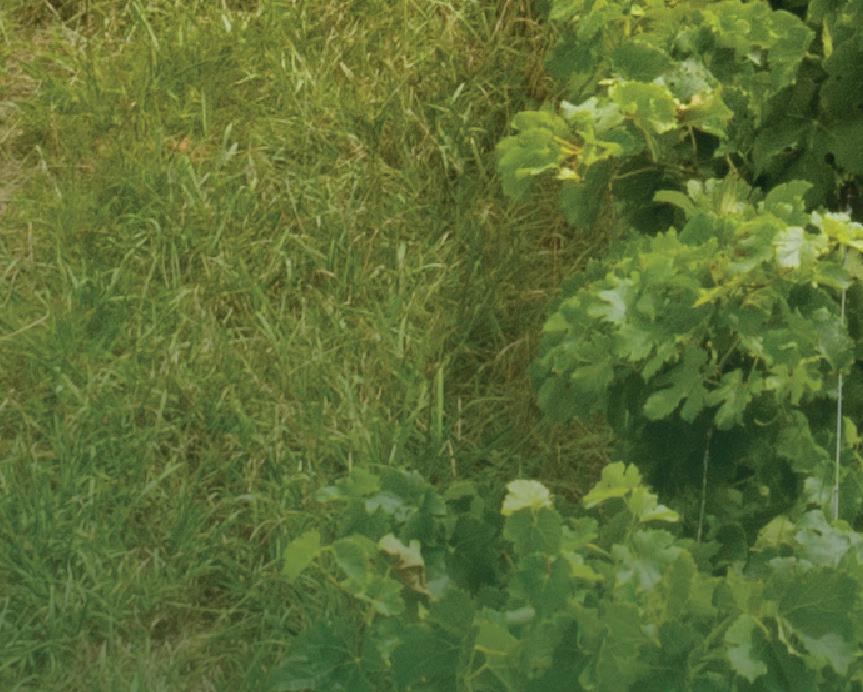
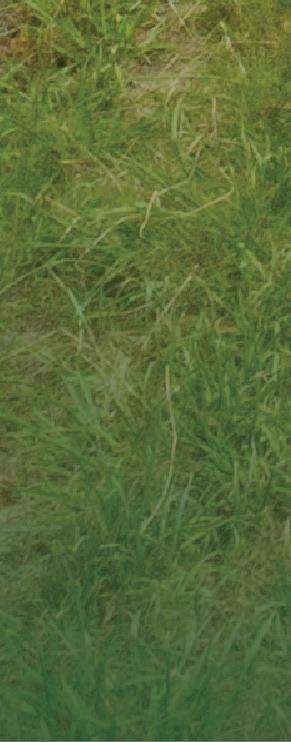
Whether you nd us in-store or in the eld, each Fruitfed Supplies team member is backed by our technical and research and development teams to bring you the latest in crop protection and management.
